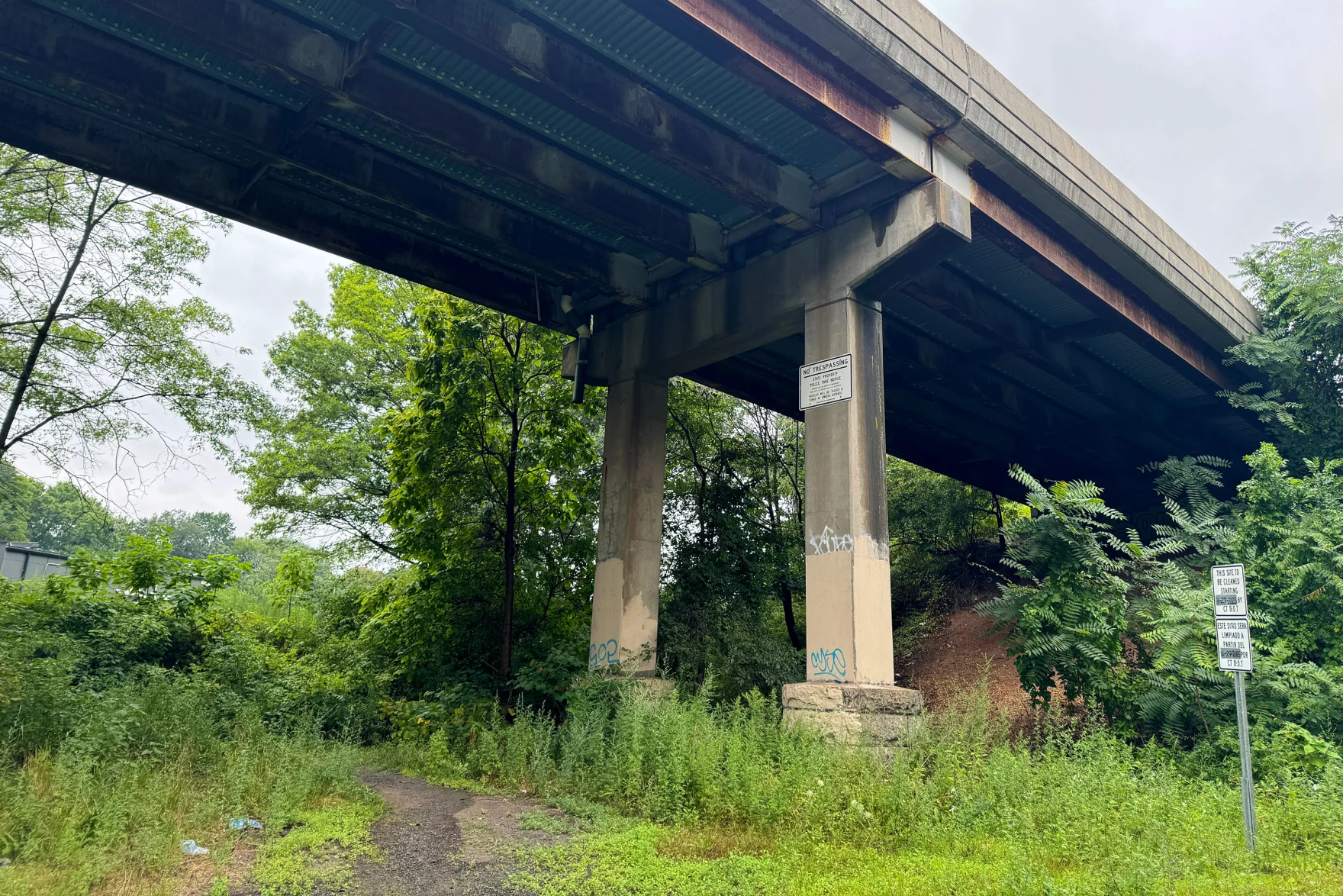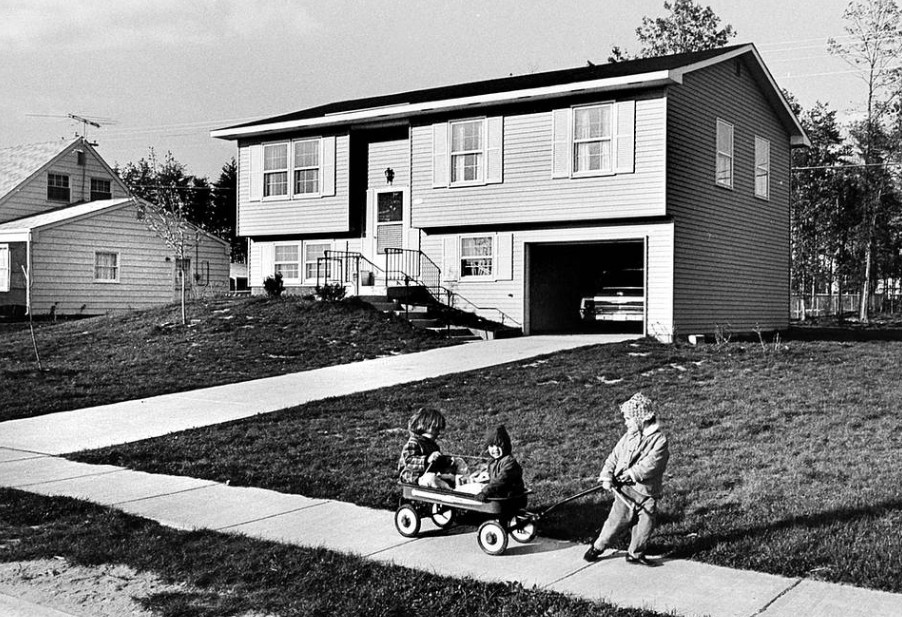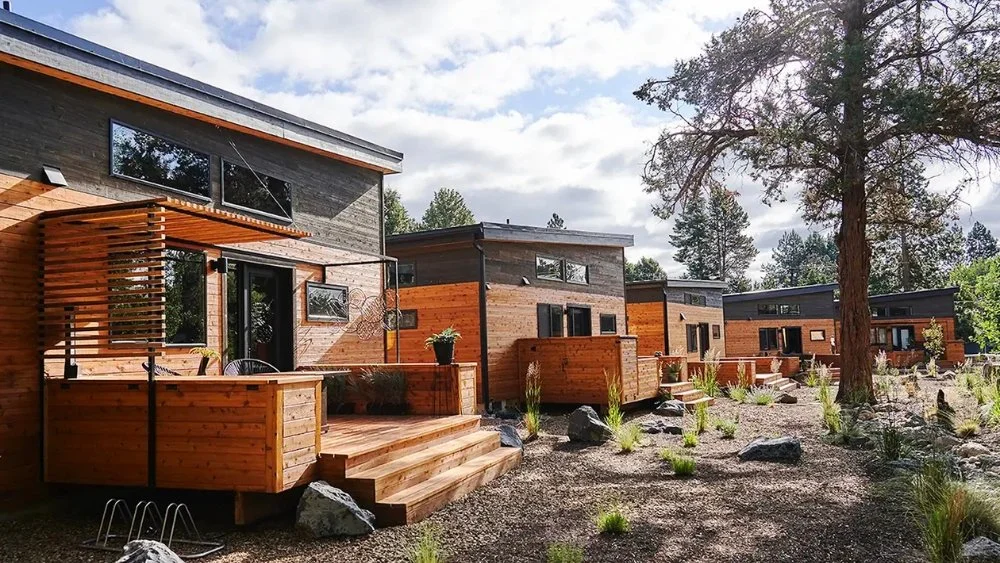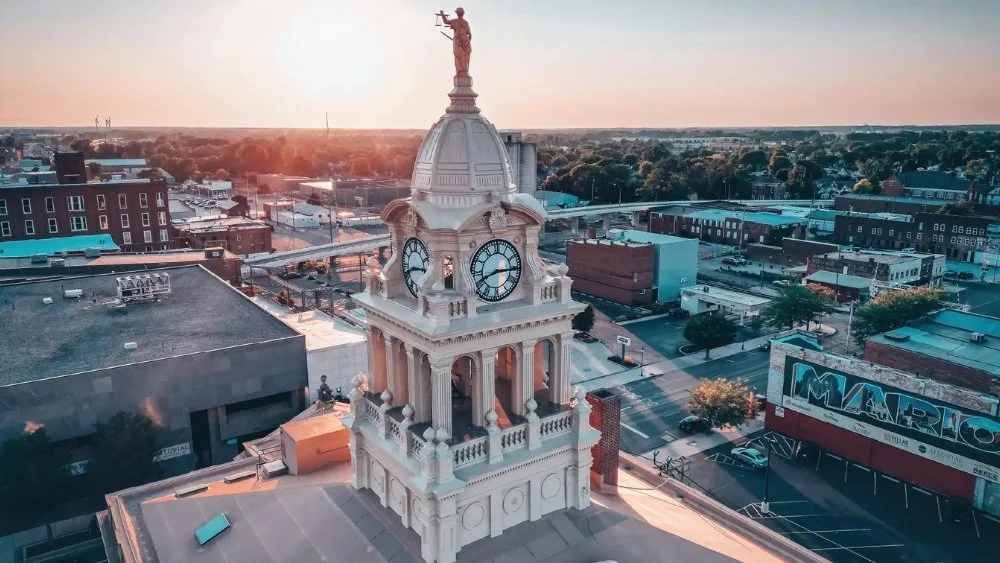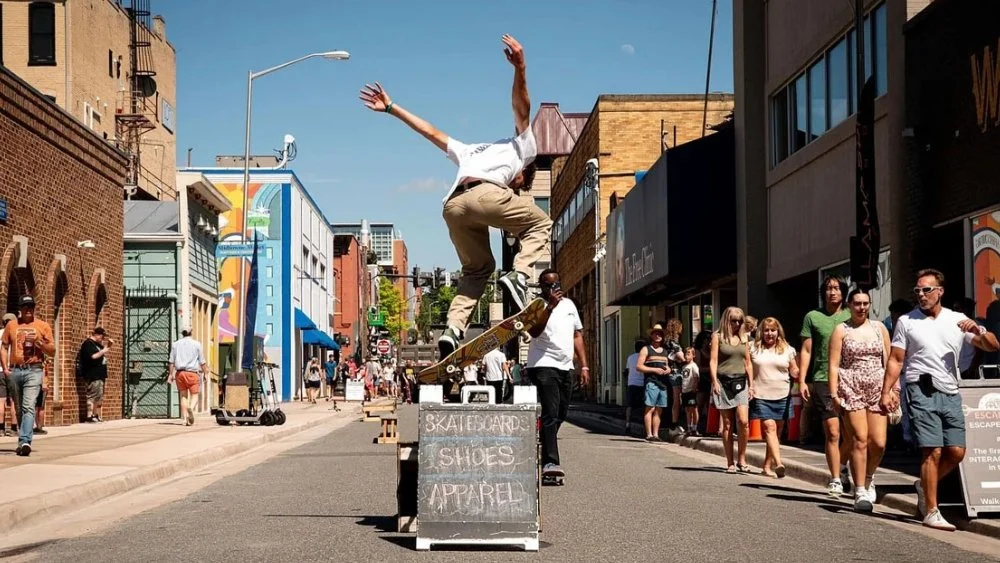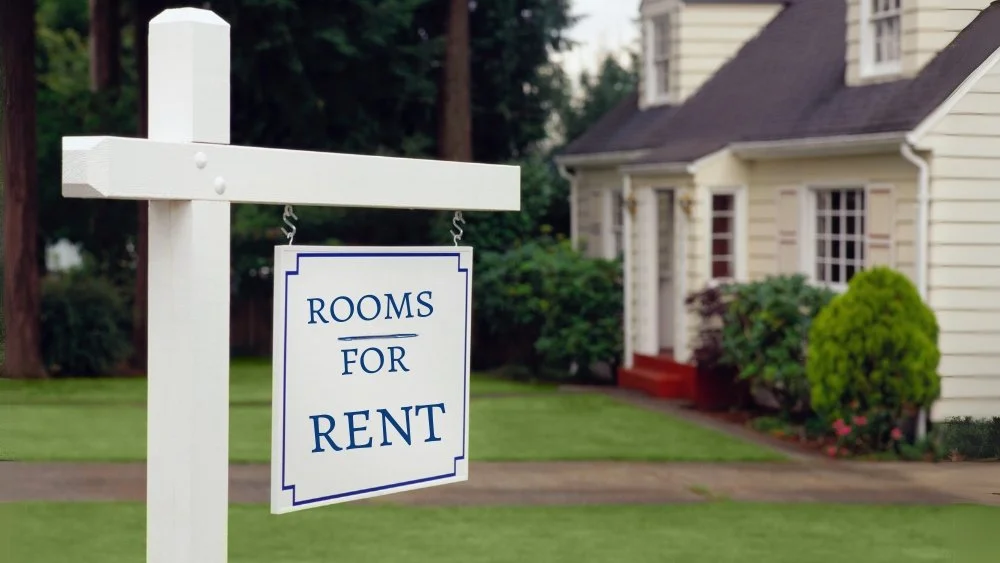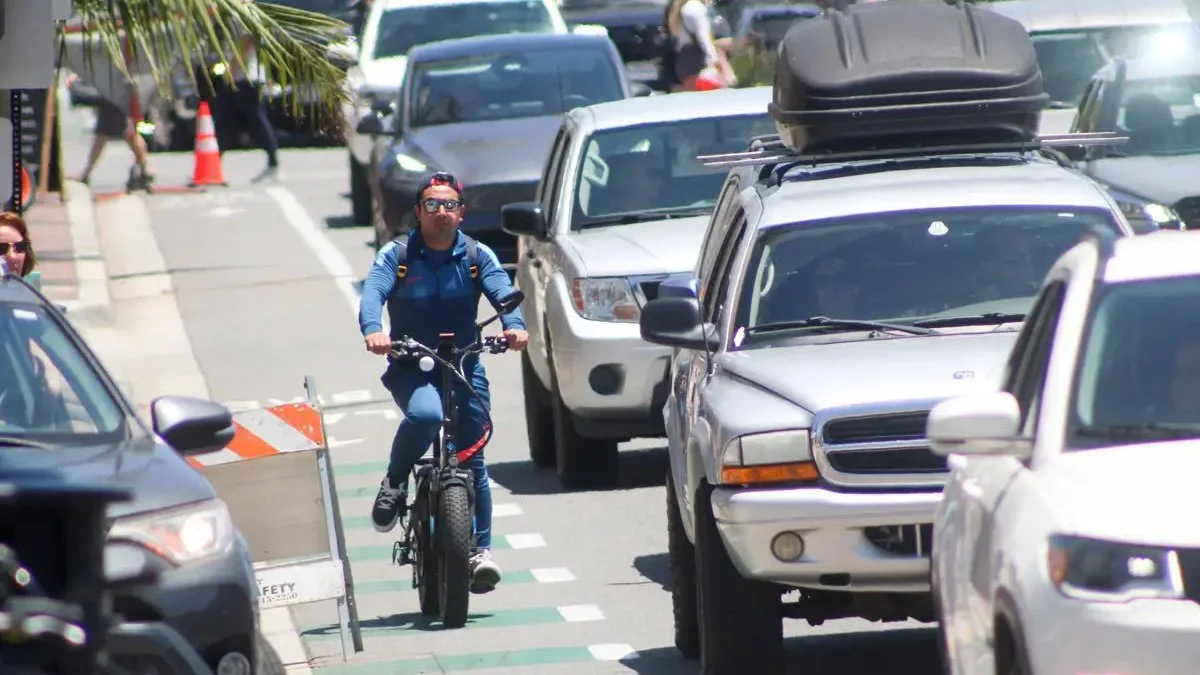Around the Movement
The latest action and momentum from around the Strong Towns movement.
Editor’s Note: This piece comes from a Strong Towns Local Conversation member observing how winter snow reveals the underlying priorities of our streets. The goal is not to prescribe a universal fix, but to encourage locally grounded reflection on how street design affects mobility and access year-round.
[[divider]]
Every winter, the same pattern appears. Snow falls, plows roll out, and crews work continuously until roads are mostly clear. Cars continue to move with minimal interruption.
At the same time, sidewalks disappear for long stretches. Crosswalks end abruptly as snowbanks pile up. Curb ramps—the places where people are meant to cross—become blocked or unusable. For many residents, this isn’t just an inconvenience; it’s an accessibility nightmare. People using wheelchairs, walkers, or strollers can find entire routes suddenly impassable because the infrastructure they rely on is treated as secondary.
This isn’t a failure of effort or goodwill. It’s not about who did or didn’t shovel. Winter simply reveals what our public right-of-way is designed to prioritize
Snow is a roadway audit, if you know where to look.
Roads Are Treated as Essential Infrastructure. Sidewalks Are Treated as Optional Space.
When snow falls, roads are cleared first, fastest, and most thoroughly. This makes sense within the logic of the system: roads are wide, continuous surfaces designed to be serviced by large equipment.
Sidewalks, by contrast, are narrow, fragmented, and often physically separated from the roadway. Even where they are publicly owned, they rely on different tools, different timelines, and sometimes different responsibilities. The result is predictable: sidewalks remain icy, narrowed, or blocked long after roads are fully passable.
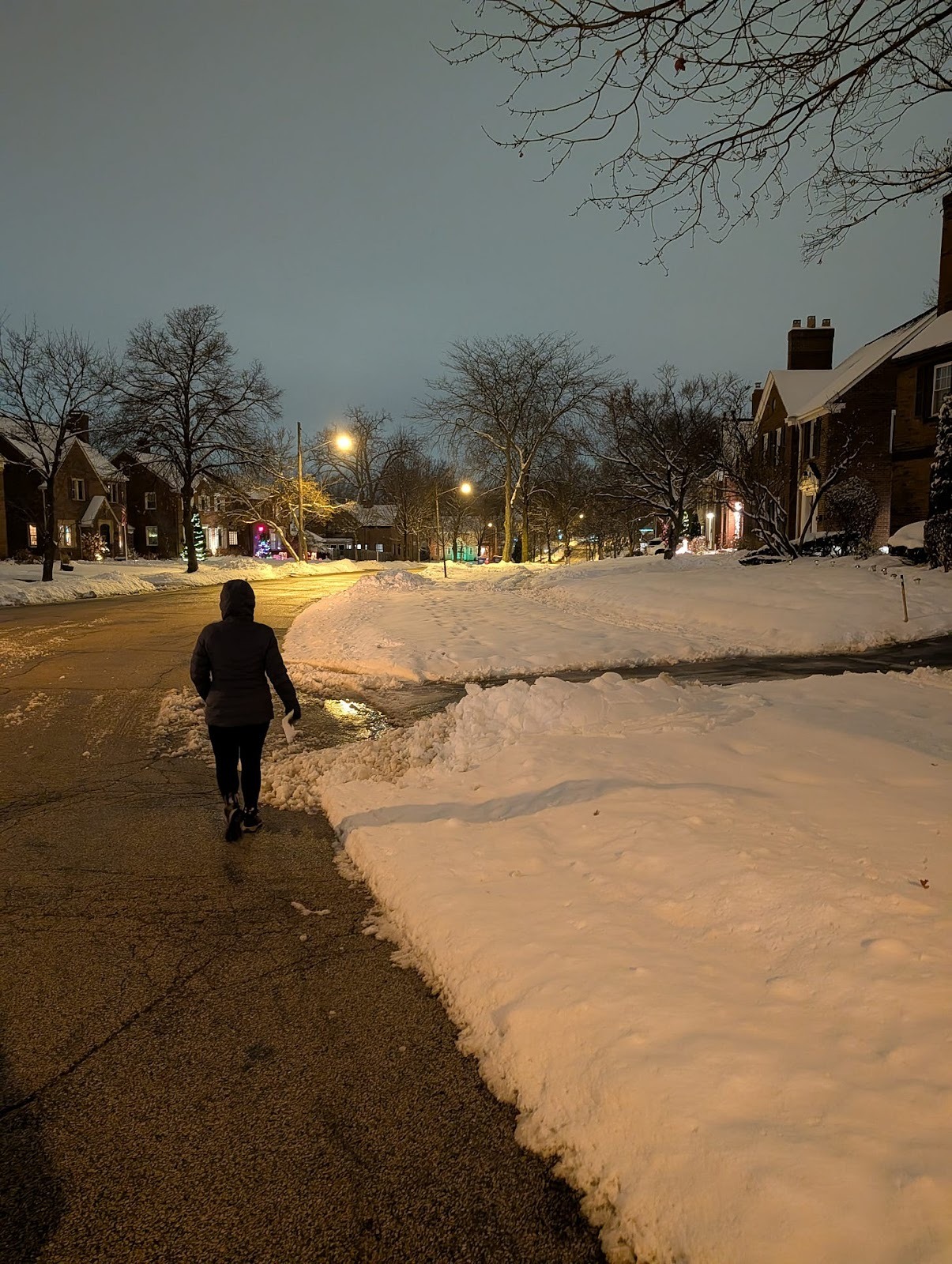
What winter exposes is not neglect, but design intent. Roads are built to function year-round. Sidewalks are treated as “nice to have” left-over space once vehicle movement has been accommodated.
Intersections Tell the Most Honest Story
If you want to understand a street’s priorities, look at its intersections after a snowfall.
Pedestrians are forced to step into the roadway or detour away from the place where crossing is intended to happen because once the snow is off the roadway the job is “done”. People on foot are expected to navigate slush, ice, and piled snow at precisely the point of highest conflict.
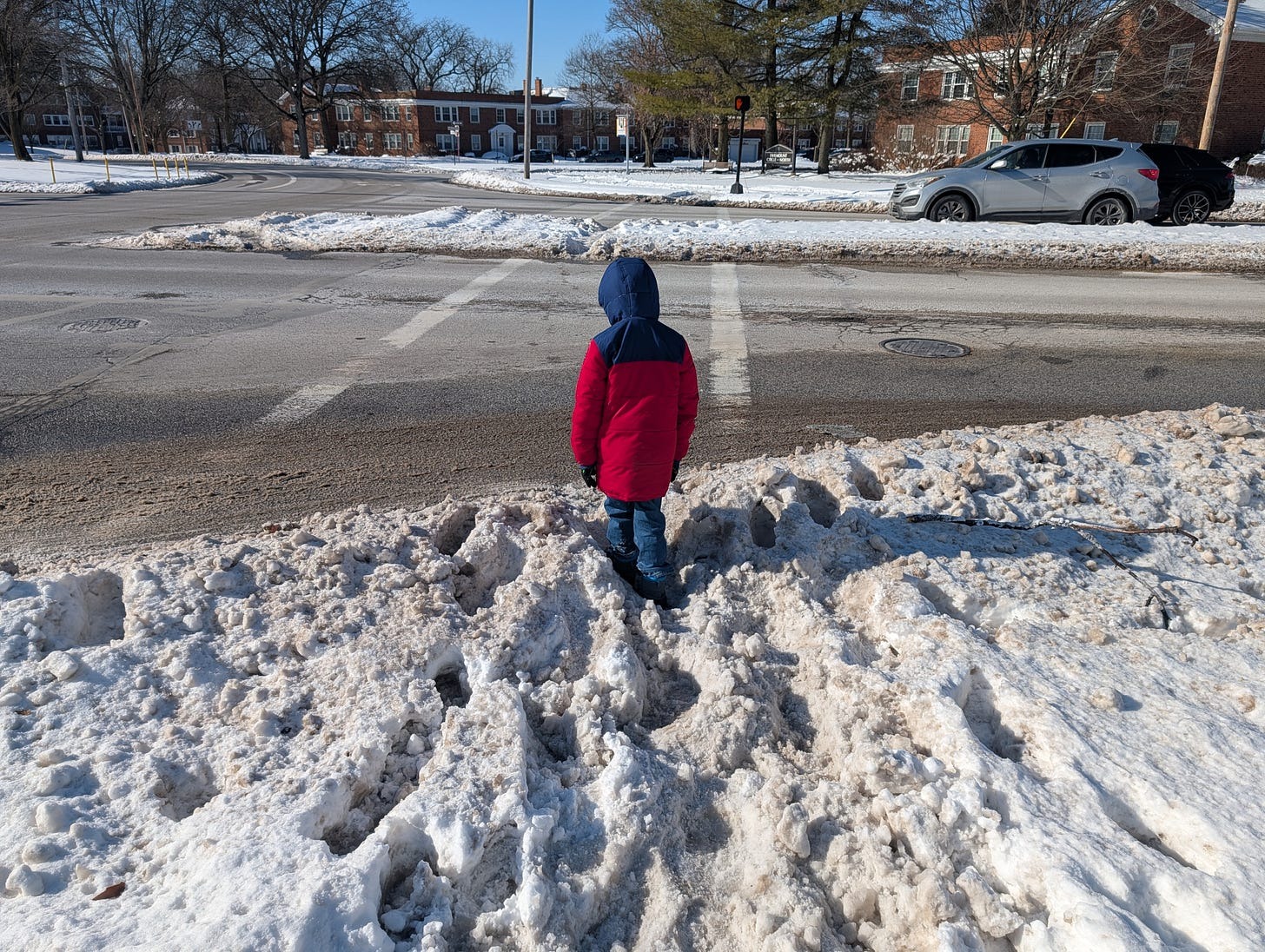
None of this is accidental. Intersections are engineered first for vehicle movement and storage, with pedestrian crossings frequently constrained by what space remains. Winter strips away the appearance that all users are being accommodated equally.
On the other hand, one of winter’s lessons is just how adaptable vehicle movement is, even when streets are narrowed by snow. After a storm, lanes are often functionally slimmer. Shoulders disappear. Parking lanes vanish. And yet traffic continues to flow. Speeds adjust. Drivers, of course, adapt.
The extra asphalt that vehicles barely use in winter still dictates how far a person must walk across moving traffic in the summer. Crossing Warrensville Center Road at Fairmount Circle, for example, is a daunting 105 feet from curb to curb on a normal day! On a snowy day, that distance is reduced to less than 80 feet with a brand-new visual “refuge area” thanks to unplowed snow.
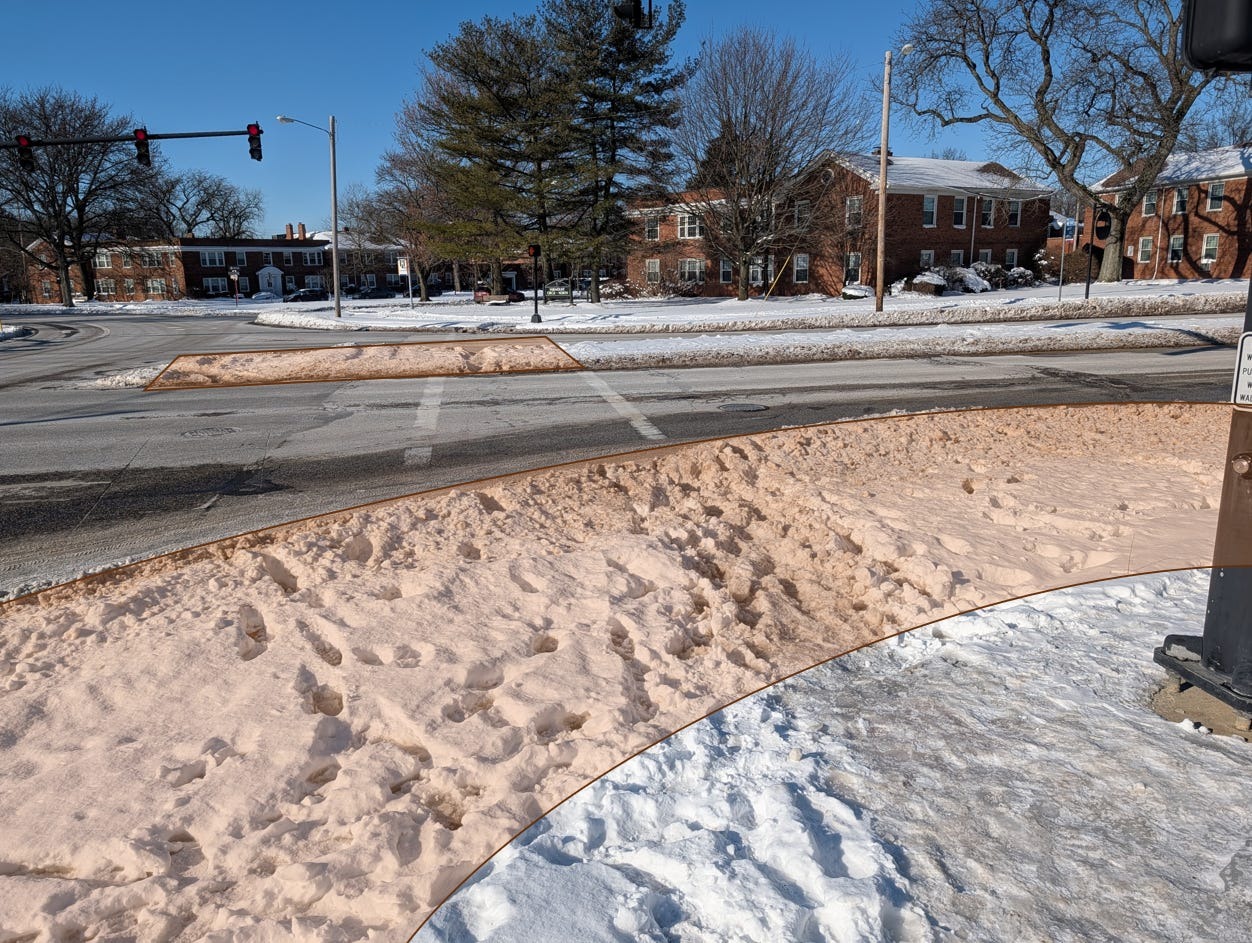
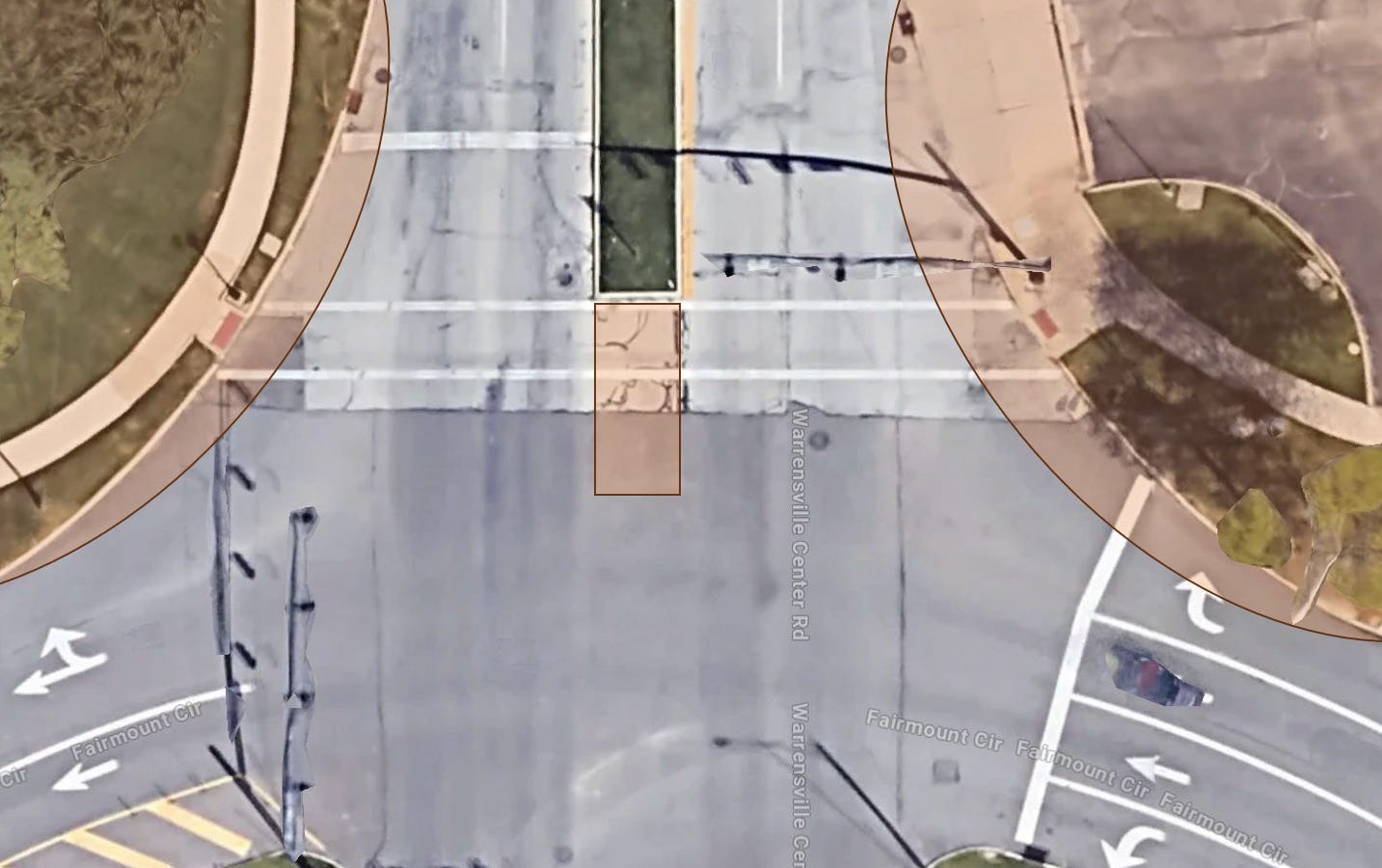
Winter unintentionally performs a kind of "road diet" and traffic survives it just fine. The fact that streets continue to function with less exposed pavement raises an uncomfortable question: why do we need so much of it the rest of the year?
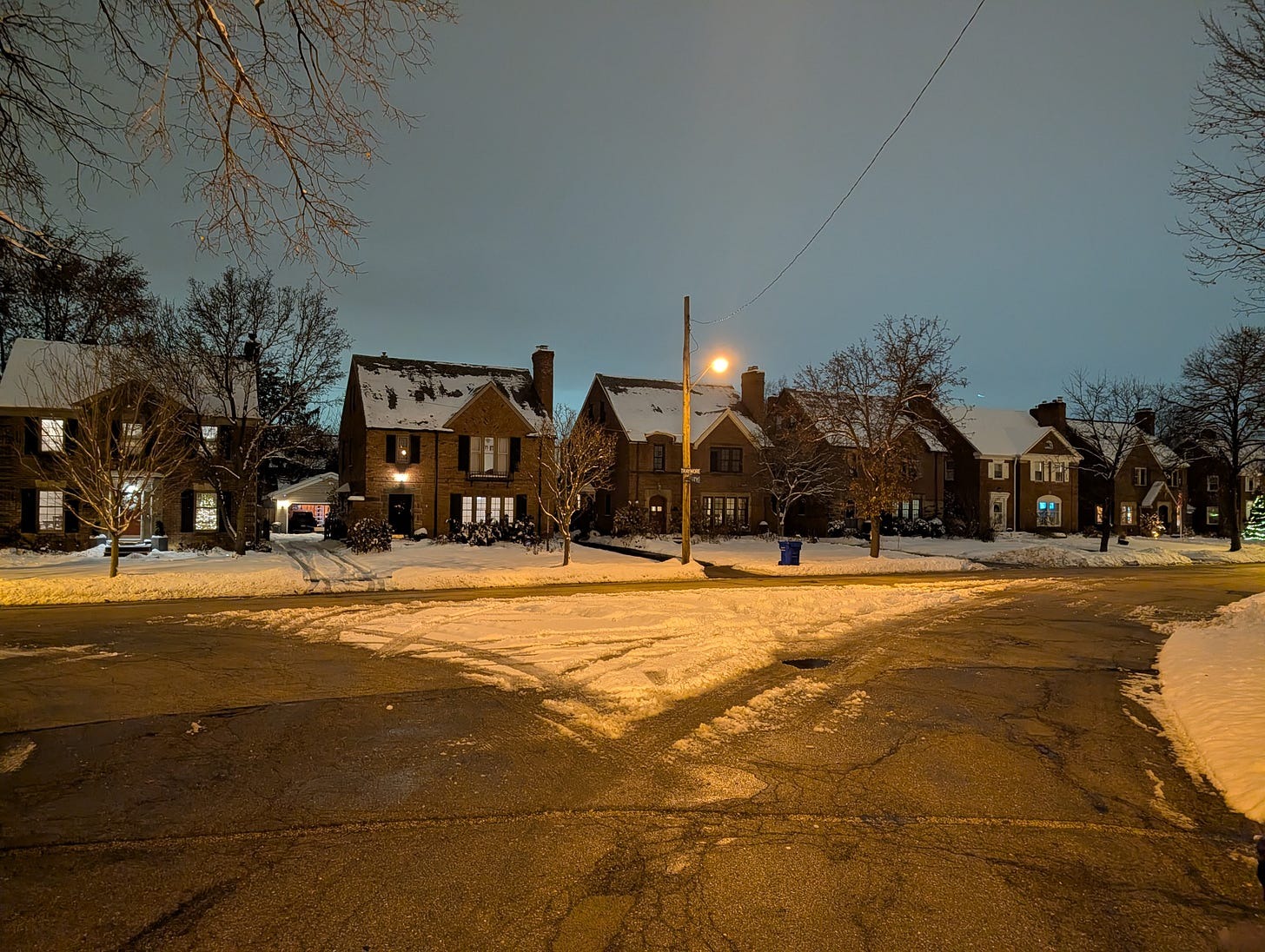
What Winter Makes Impossible to Ignore
When the snow melts, these imbalances fade from view. Sidewalks widen again. Crosswalks reappear. The street looks neutral, even fair. But winter tells us several truths.
It shows us that our streets are not neutral spaces shared equally by all users. They are shaped by a set of design assumptions: that speed matters more than safety, that vehicle movement must be effortless in all conditions, and that walking can adapt around whatever space remains.
But it also reveals something hopeful alongside this imbalance. Vehicle travel continues even when lanes are narrowed, speeds are moderated, and excess pavement disappears beneath drifts.
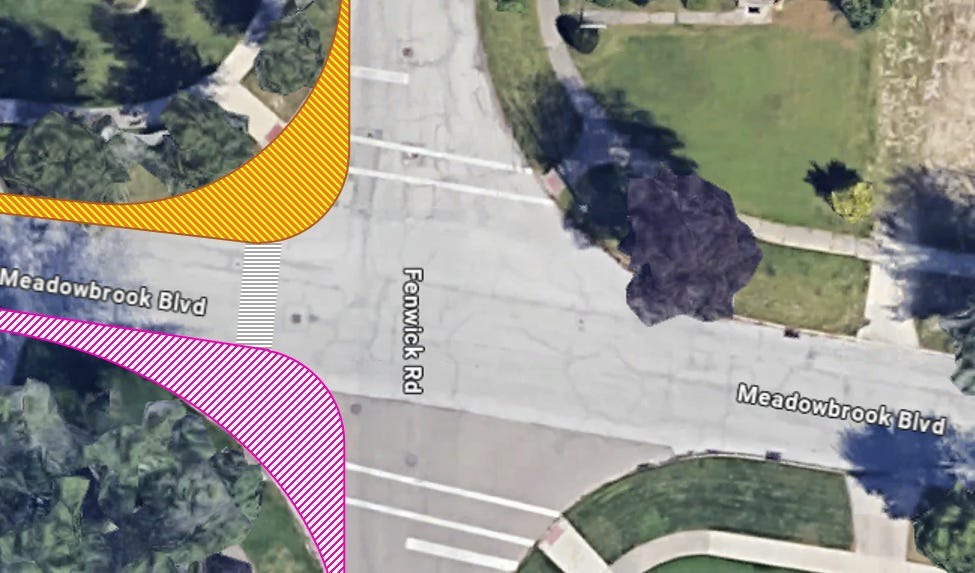
This contrast is a place of opportunity. If we want streets that work year-round, for everyone who uses them, we can design them that way from the start. Not just by hoping for the best, but by learning from what winter “snows” us.
Across public squares all over Europe, early evenings fill with the sound of children racing across cobblestones, inventing games beneath café umbrellas, and darting between benches. Nearby, parents linger over coffees, glasses of wine, or leisurely dinners, half-watching, half-unwinding as the life of the square hums around them. It’s a familiar scene: the family outing, where kids get to play, explore, and simply be kids, while their parents finally get to relax.
Meanwhile, in Langley, parents can never quite exhale. They’re scanning for cars, checking blind spots, tracking every passing pickup, hovering at the edges of parking lots as if standing guard. Every time their child drifts more than fifteen feet away, a new calculation is made in an endless loop of vigilance that turns even a simple outing into a low-grade emergency.

This isn’t overprotective or “helicopter” parenting, it’s what our built environment demands from parents. While a public square helps add to children’s safety in Europe, our cafe patios all exist either inside parking lots or on the edge of busy roads. Langley doesn’t have many places where kids can be kids and parents can just… let them.
We’re Investing in Game Day but Ignoring Tuesday
The Township of Langley is spending big on youth facilities right now. The Smith Soccer Academy: $130 million ($CAD). The 5-Rinks ice complex: another $150 million. These are state-of-the-art facilities, among the best-designed of their kind.
I asked a local councillor a straightforward question about why 5 Rinks was prioritized when families in the Willoughby neighbourhood, for example, would benefit more from a library or community center. His answer reflected a broader assumption baked into municipal decision making. It focused on the design quality, construction cost savings from starting early, the efficiency of underground parking and stacking dry floors above ice sheets.
He said this approach was “what is needed to deal with such a large youth population” and that these rinks “will serve many needs not just hockey.”
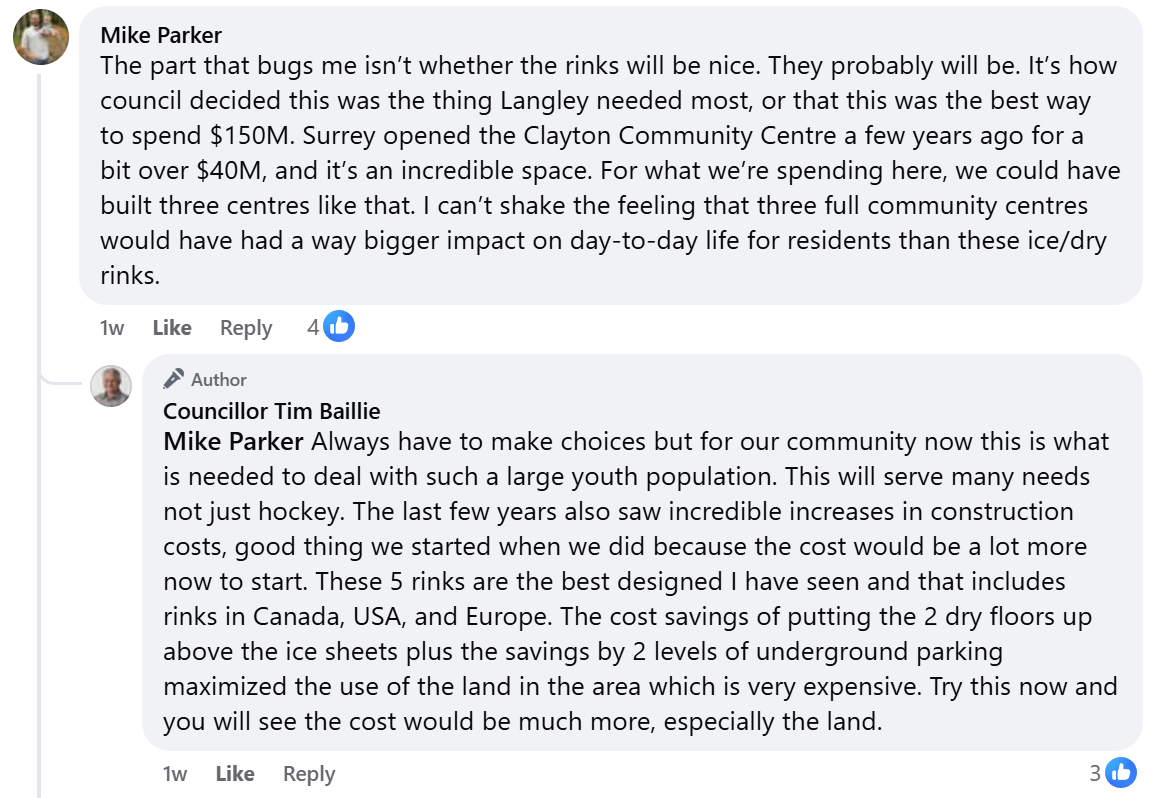
He’s not wrong about any of that. The facilities will be well-designed. They’ll serve lots of kids. But notice what’s missing from that answer: any acknowledgment of what daily family life actually feels like in Langley.
On a random Tuesday afternoon, where can I take my kid so he can run around while I sit down for 20 minutes without being in constant surveillance mode? Where in Langley can we go that doesn’t require me to scan for backing-up cars?
The Smith Soccer Academy and 5-Rinks will give us a few hours a week of scheduled, structured activity that requires driving to a centralized location. What they won’t give us is any relief from the other 160 hours of the week when we’re just trying to get through the day.
That disconnect between massive investment in youth sports infrastructure and zero investment in reducing daily parenting stress explains everything about why raising kids in Langley feels so exhausting.
The Shape of Daily Life Here
Think about the daily life of a Willoughby family, the places they go and what those places look like. The grocery store, a cafe, a restaurant, day care pickup, schools. All these places are on a sea of asphalt designed for optimal car throughput and abundant parking.
In these environments, children can’t roam even a little. Cars are everywhere moving fast and built on a scale that hides children completely. Parents are constantly on edge because the built environment prioritizes cars over the safety of our children.
Even in places meant to be walkable—like the still developing commercial town centre—there are no real barriers between kids and traffic. Drivers pull in and out of busy entrances without expecting children. Patios are hemmed in by parking stalls, and there’s nowhere small, safe, and interesting for kids to wander, explore and play.
A Very Specific Example of a Good Place in Langley
On the next nice day go have a beer at Locality Brewing (a local brewery in rural Langley) and see what happens with the space they’ve created there. Parents sit at picnic tables having a beer while their kids run around the open area, running in circles, kicking a ball, playing on the slide, checking out the lagoon. No one is tense. No one is scanning for backing up SUVs. The environment does the hard work, not the parents.
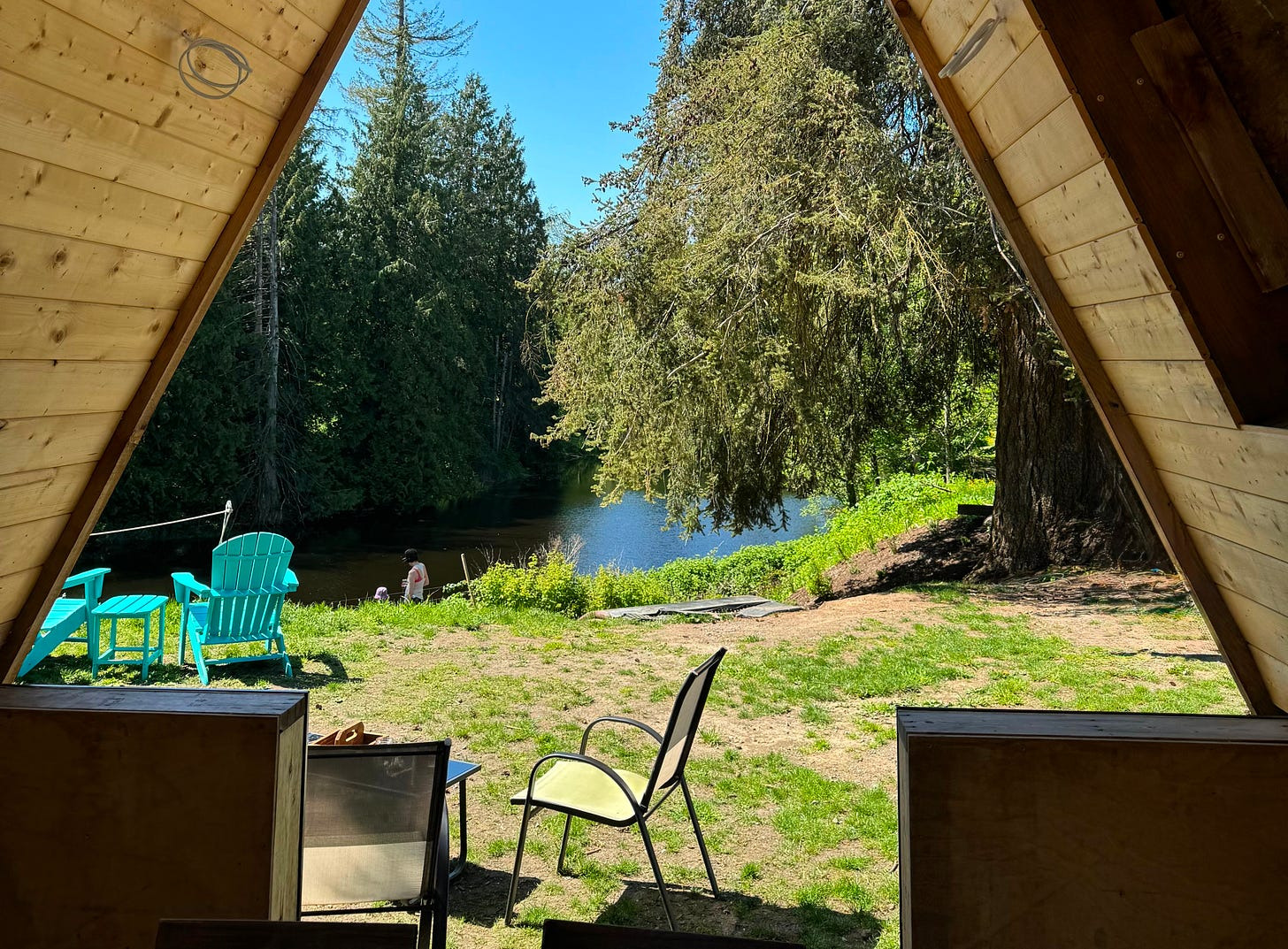
This space works not because they spent hundreds of millions on designing it but because it’s one of the only places in Langley where parents aren’t forced into a hyper alert mode and can instead just enjoy themselves. It’s a reminder that kids don’t need arenas to have fun, grow and develop. They need safe spaces scaled to their bodies and abilities. Parents don’t need more spaces for structured play, they need a break. Places like this should be everywhere.
Latimer Village is a Near Miss that Explains Everything
Latimer Village is a new mixed used master planned community. It could have been Langley’s answer to the child-friendly European town square. The density is there, the retail shops are there even the branding of it being a village implies that we’re thinking about community but it still misses the mark.
The residential buildings have central green-space, but the mixed-use buildings with shops, the natural heart of community life where families and friends get together, have central parking lots instead. The pedestrian-only section that actually invites wandering, play and exploration is tucked in the back, invisible from patios and storefronts where the parents sit.
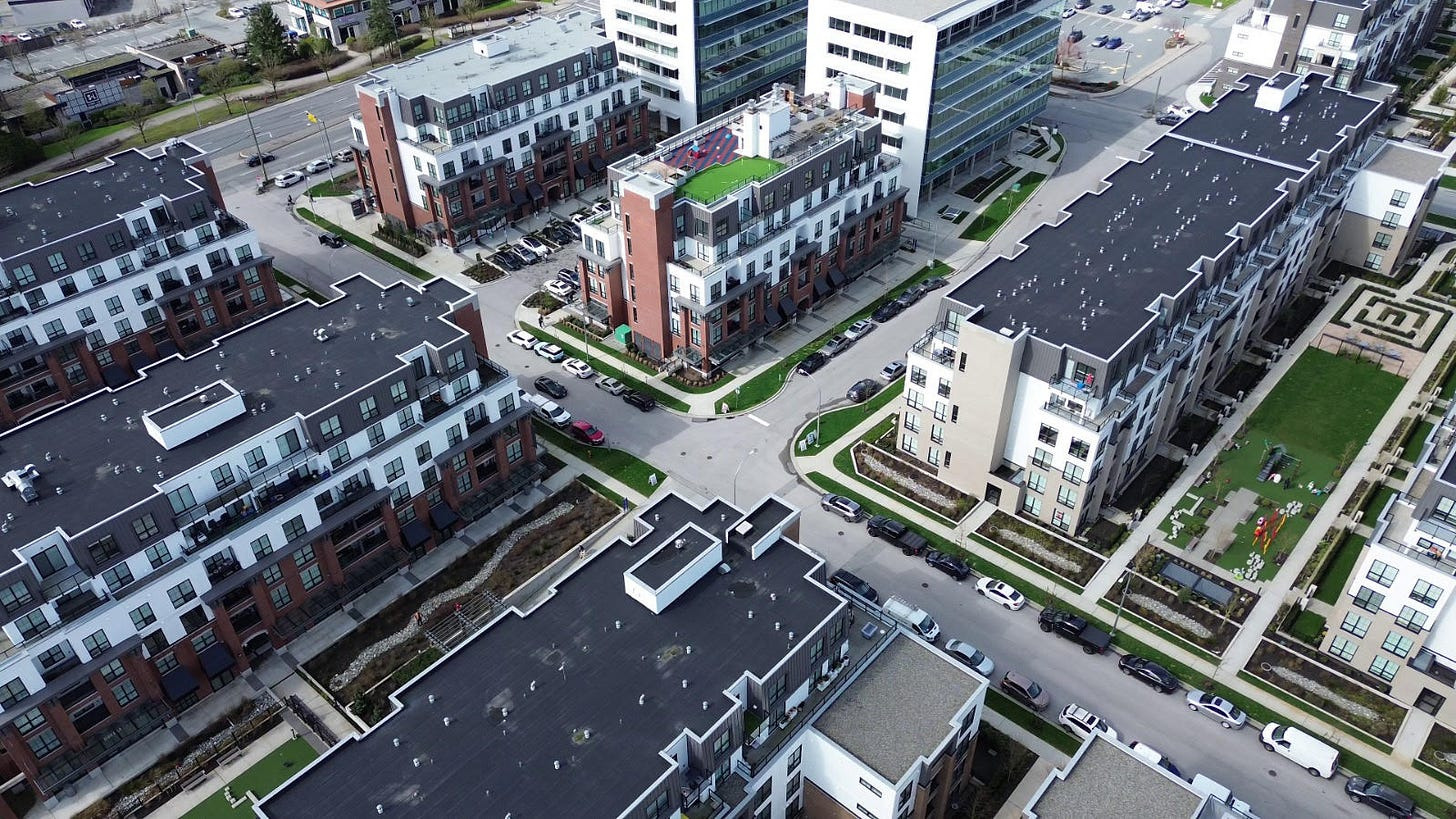
The message the development sends is clear: eyes up, stay close, watch for cars and definitely don’t relax. Latimer Village isn’t a failure of ambition, it’s a symptom of how we default to cars first, people second. Even our walkable village is shaped by car logic.
Imagine if, instead, Latimer Village’s shops fronted a public square and playground. You could sit on the cafe patio having a latte while your kid played. It would also create a more inviting destination overall where people can spend more time. Business owners are often concerned about parking, but they should also consider “stay-time.”
Beneficial relationships can start to form between different adjacent businesses. Someone may want to do some shopping, or get a haircut, and then because they are spending more time in the area, they end up also having a coffee or getting food afterwards. The more inviting and nice the area is to be in, the more likely they are to stay for longer, especially if there are things for kids to do. Even indoor shopping malls understand these benefits.
Sadly, we don’t get that reality. Instead, we built Latimer Village for cars first and yet people still complain constantly about parking there! So what did we achieve by giving all this up for store-front parking?
Mega-Projects Aren’t the Answer
The Smith Academy and 5-Rinks aren’t bad facilities. They’ll be beautiful. Kids will learn teamwork and sportsmanship. Tournaments will come to town.
But they require families to:
- Drive long distances to and from centralized locations
- Navigate congested parking lots with one or more children
- Register and pay for a scheduled and structured activity
This is the exact pattern that makes parenting in Langley so stressful, and we just spent $280 million reinforcing it.
We have built a system where youth recreation is highly structured, highly scheduled and car dependent while unstructured daily childhood play has nowhere to exist. Instead of building everything in two massive complexes, these projects could have been spread throughout the community. These could be smaller facilities families could walk or bike to for a game, with the remaining budget invested in the neighbourhood spaces where daily life actually happens.
The Opportunity Cost
It’s not just the $280 million. It’s the opportunity cost of what we didn’t build. For the price of 5-Rinks alone, we could have built three community centres like Surrey (our neighboring municipality) spread across different neighborhoods. Each would be walkable for thousands of families. We’d still have tens of millions left over for:
- Plazas with car-free edges where kids can roam
- Neighbourhood parks within a 10-minute walk of every home
- Traffic-calmed streets that kids can ride bikes and play street hockey safely on
- Patios that face play areas instead of exhaust-filled parking lots
These things don’t cost hundreds of millions but we’re not building them because we spent that money centralizing sports instead of distributing access to safe, unstructured play space.
Worse these developments create a negative feedback loop:
- Mega projects force parents to drive further
- We spend more on parking lots and roads
- More car infrastructure leads to less safe neighbourhoods
- Less safe place creates more demand for centralized mega projects
- More centralized projects leads to more driving
We’re not only missing an opportunity, we’re actively making it more difficult to solve the real problems Langley families are facing.
A Town Built for Families
Langley is full of young families and school enrollment shows that we are only attracting more and more young families. We’ve built a landscape where raising kids requires constant vigilance.
We have a few small examples like Locality which offers space for parents to exhale and relax a little bit. Latimer Village shows how close we are to getting it right but these sports complexes show how much we’re still spending on the wrong problem.
If we want to support families, the simplest and most powerful thing we can do is build environments where kids can play and parents don’t have to hover.
A family friendly city isn’t one with the best soccer academy or the shiniest hockey rinks, it’s the one where parents can finish a cup of coffee while their kids play within sight. We had $280 million to invest in Langley’s children. Instead of investing in the everyday spaces that make daily life easier and more joyful, we went for the spectacle and in the process, left childhood and parents on the sidelines.
[[divider]]
This article was originally published, in slightly different form, on Strong Towns Langley's Substack. It is shared here with permission.
Strong Towns Langley is a community group dedicated to making Langley, British Columbia a better place. We advocate for incremental development, sustainable transportation solutions, housing accessibility, public spaces, and responsible growth strategies. Our group is part of the larger Strong Towns movement, focusing on creating financially resilient and people-oriented communities.
Caroline Tanbee Smith fell in love with New Haven, Connecticut the way a lot of people fall in love with a place: not all at once, and not because a brochure told her to.
It was the small things first. A run past the same porch, the same nod, the same wave. Summer days spent wandering “dusty corners” of City Hall for a project that forced her to learn the city as a living, somewhat messy, thing. And then the kinds of memories that you can’t plan for: sitting on the grass, surrounded by 8,000 people, all gathered to listen to cellist Yo-Yo Ma in the rain.
What all of these moments had in common was not spectacle, but proximity. They depended on people being able to see one another, linger together, and share space without rushing through it. In other words, they depended on the basic conditions that allow people to be neighbors.
Today, much of Tanbee Smith’s work focuses on restoring those conditions in a city where midcentury planning decisions took them away.
“My belief in New Haven is really derived by the spirit of advocacy, the history, the entrepreneurial spirit of the city that you can just feel rippling through the sidewalks and streets,” she recalled on the Bottom-Up Revolution podcast. “I think, as a young person at the time, I was so moved by that experience and also built so many friendships that made me say, ‘Hey, I want to fight for this place too,’ just like these mentors and coaches I see around me who are fighting for this city.”
Now she’s an Alder in Ward 9.
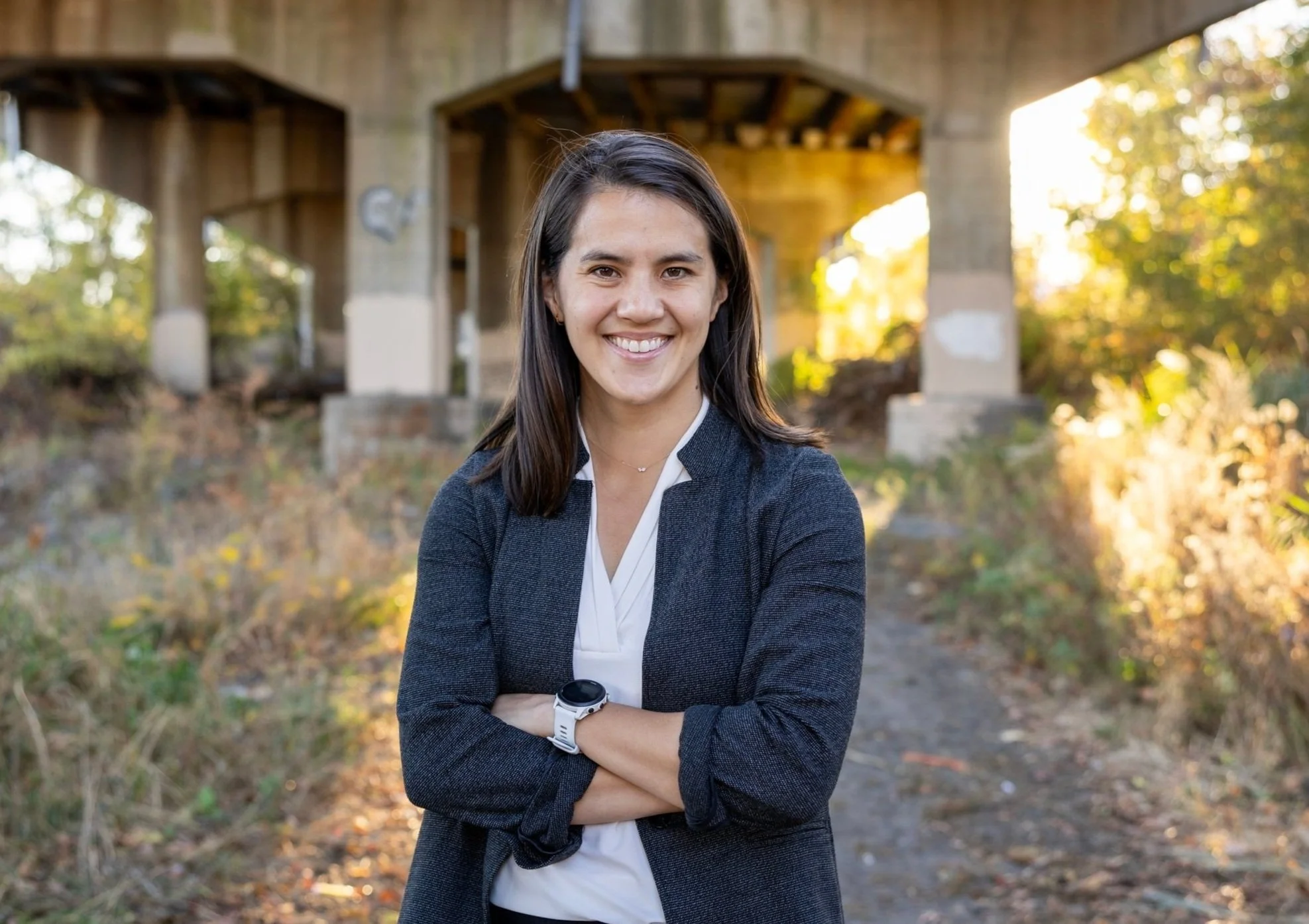
In the mid-20th century, at the height of the urban renewal movement, New Haven received $120 million in federal funding to clear so-called urban blight and redevelop its aging industrial core. City leaders were told they were building the future, a blueprint for others to follow. What followed instead was a cautionary tale. The construction of I-91 tore through neighborhoods, destroyed thousands of homes, and accelerated the flight of residents to the suburbs, draining the local tax base. What was meant to modernize the city instead fractured it. The wounds sting over half a century later.
“You can really feel the divide,” Tanbee Smith told PBS last year, describing the separation between East Rock and Fair Haven. “So about a year ago, me and a few other people looked at this underpass and this space and started to say, ‘OK, well, what if we were to take this area and reimagine it into an area that connects them back together?’”
But Tanbee Smith doesn’t talk about the highway like a monument you mourn. She talks about it like a problem you can work on, patiently, publicly, and with the people who live in its shadow. That mindset helped drive the city to pursue a federal Reconnecting Communities grant and launch the I-91 Neighborhood Reconnection Initiative. Getting funding for a different future is key, but what’s equally important is the signal it sends: New Haven is a city willing to look at its own scar and say, out loud, we can do better than this.
One underpass in particular has become a kind of proving ground for that imagination. For years it was the kind of place cities ignore: leftover space, dim and unfriendly, often trashed, easy to forget unless you live nearby. Tanbee Smith and partners have been working to turn it into an Underpass Park, or a place where young people can skateboard and shoot hoops. Ultimately, a place where one can stand near the river and feel, even briefly, like the city is on their side.
The hope is that this is only the beginning.
Smith’s response has been to work at two scales at once. If the highway represents a large, structural barrier to neighborliness, she is just as interested in the smaller, social ones — the moments where people hesitate to gather, organize, or invite one another in. That’s why she helped launch the Know Your Neighbors Fund. It provides simple $100 microgrants for residents who want to host something small, like a Saturday basketball meet-up, a chess club, a cleanup, a potluck. The dollar amount is almost comically modest, and that’s what makes it powerful. It lowers the barrier just enough to turn an “I’ve always thought about…” into “Let’s do it.” It tells someone with an idea — maybe even someone who feels a little silly for wanting it — that they’re allowed to try.
In a time when so much pushes people inward, Smith is betting on the opposite, not by manufacturing community, but by clearing away the friction that keeps it from forming. Because cities don’t heal all at once. They heal the way people do: through repeated, tangible experiences that slowly restore faith — faith that the place can change, and faith that we can change it together.
Learn more about Caroline Tanbee Smith’s work on the Bottom-Up Revolution Podcast.
In the 1940s and ’50s, South Bend was the site of the American promise. Downtown bustled with department stores and lunch counters, neighborhood business districts hummed with local shops, and block after block of modest single-family homes filled with workers walking to and from shifts. Studebaker, the automotive manufacturer, anchored it all.
South Bend was a place where a good job at the plant could reliably support a household and send kids to college. At its peak, the company employed tens of thousands, drawing families from across the Midwest and sustaining a dense web of small businesses, civic clubs, churches, and social traditions. Families bought homes, settled into neighborhoods, and built lives around the idea that the factory’s future and their own were intertwined.
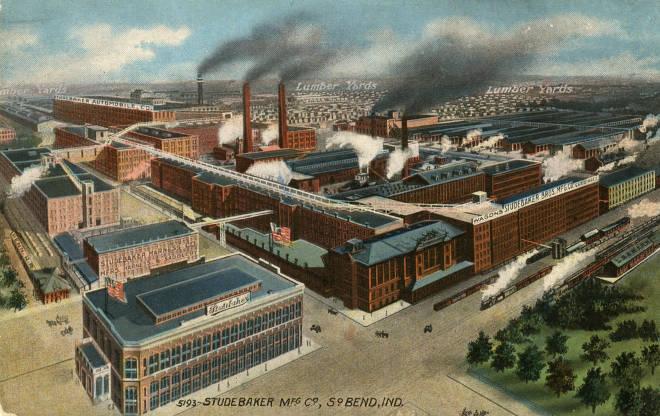
Then the bottom fell out.
By the mid-1960s, the Studebaker shutdown became the city’s defining story — so dominant that for half a century you couldn’t mention South Bend without someone sighing, “well, you know… when Studebaker left.” In 2011, that narrative was so entrenched that Newsweek listed South Bend among the “Dying Cities of America.” The label stung not because it was mean, but because it confirmed what many already believed: it was over.
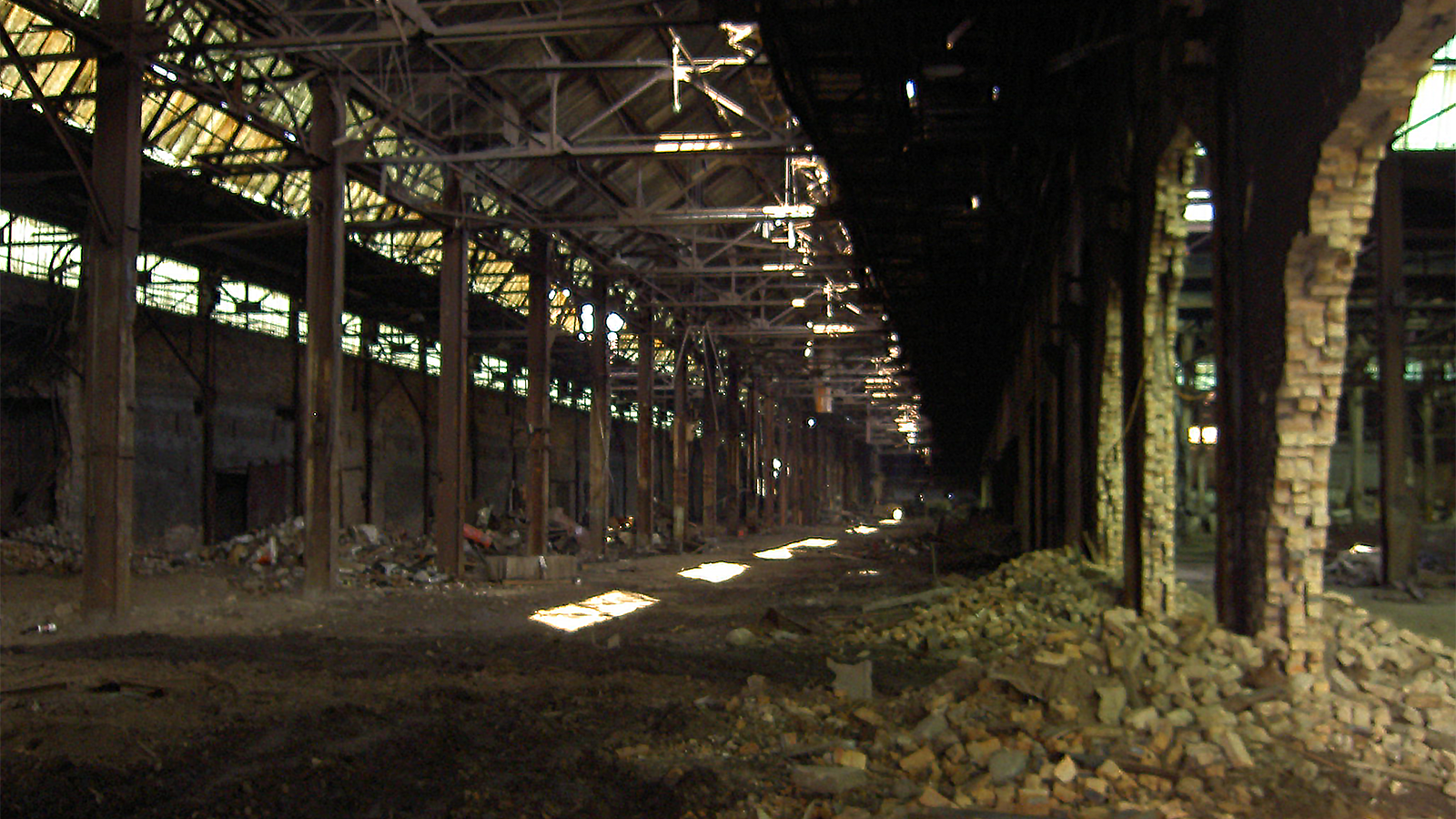
Yet, if you spend time in South Bend today, you’ll rarely hear Studebaker come up at all. At least, that's what Mike Keen told me. Keen is a local. He’s also a former university professor-turned-incremental developer. Most importantly, he’s part of South Bend’s revival. It’s not that the wound has vanished, he explains. It’s still part of the city’s story, but it’s no longer the story of South Bend. It’s a part of history. Eventually, he hopes, it’ll be a footnote.
For decades, the city was frozen in a narrative that cast the past as destiny. Today, it behaves like a place that understands the past is the past and the present is where the future gets built.
The Next Best Time To Plant a Tree is Today
Keen’s work exemplifies this shift. After the 1,000 Homes in 1,000 Days initiative concluded, his neighborhood was pockmarked with empty lots. The program had been pitched as blight removal, targeting streets lined with dilapidated homes. Those homes were indeed eyesores — they attracted crime and reinforced the city’s low morale — but demolishing them left entire blocks hollowed out, with no immediate plans to rebuild on the newly vacated lots.
Instead of waiting for a master plan or a single catalytic investment, Keen began assembling homes and vacant parcels one by one. He helped launch the Portage Midtown Initiative and the South Bend GreenHouse, restored neglected homes, cultivated community gardens, and supported local builders learning to tackle small projects themselves. He often refers to these lots collectively as his “farm.”
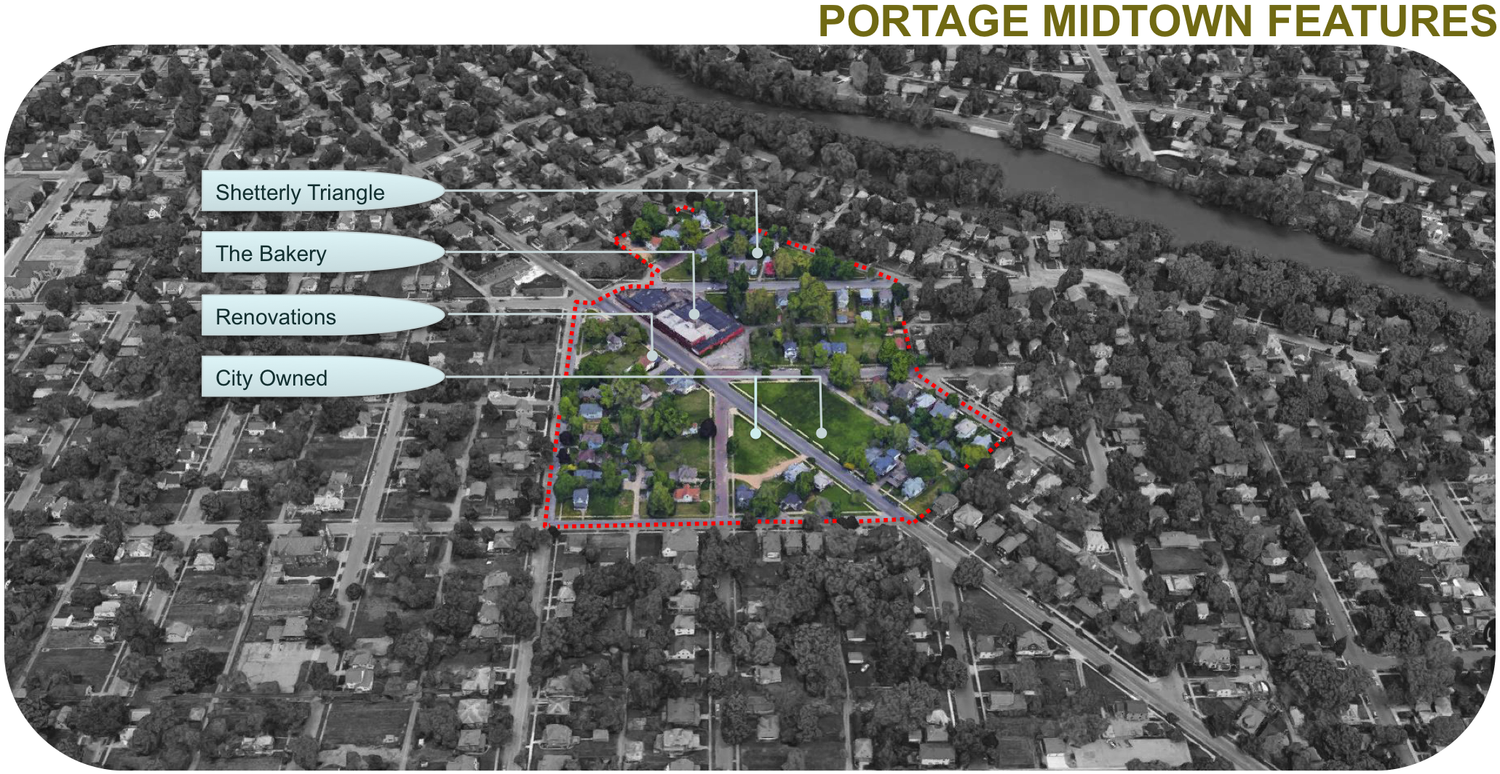
Each small intervention stabilized the block, which encouraged additional investments, drew in new residents, and gradually restored confidence.
All the while, he was hosting gatherings at his own home to connect local developers, city officials, contractors, architects, and neighbors. He told me how those home gatherings grew from five to twelve to sixty to nearly a hundred people in a blink. The guiding philosophy was simple but radical: development is most effective when it is inclusive, collaborative, and rooted in a deep understanding of a specific place. And in order for that to work, everyone had to come sit at the table.
Many Hands, Many Bets
Keen wasn’t alone in this work. There were already dozens of residents committed to revitalizing their neighborhoods. What he helped do, is make them realize they’re all part of an ecosystem.
Barbara Turner of Revive Homes LLC leverages her own resources to restore homes in her community. Sarah Hill, a public library administrator, renovates historic houses through Penny Hill Homes. Consuella Hopkins launched Swella’s Ville, a mixed-use district with homes and office space designed to anchor economic revitalization on the west side. Jordan Richardson and Tony Ruiz are restoring their own neighborhoods, rebuilding homes, and creating opportunities for residents historically shut out of ownership. Each project strengthens the next, creating a network of care and action. And each of these developers shares a simple mantra: if I can do this, anyone can.
Keen’s initiative helped surface and connect these existing efforts, creating a collaborative ecosystem where knowledge, contractors, lenders, and technical expertise circulate openly. Keen calls this approach “finding your farm”: pick a manageable area, commit to it for the long haul, and engage deeply with neighbors and local stakeholders. This networked approach transforms development into something more akin to community organizing.
By working this way, developers can identify undervalued opportunities, build trust, and create a virtuous cycle where each project strengthens the next. As Keen told Strong Towns years ago, “I see the small-scale development approach as a form of DNA… If you have a dandelion seed, a bird can drop it anywhere, and it’s going to create dandelions. Unless something is really wrong with that place, something will grow.”
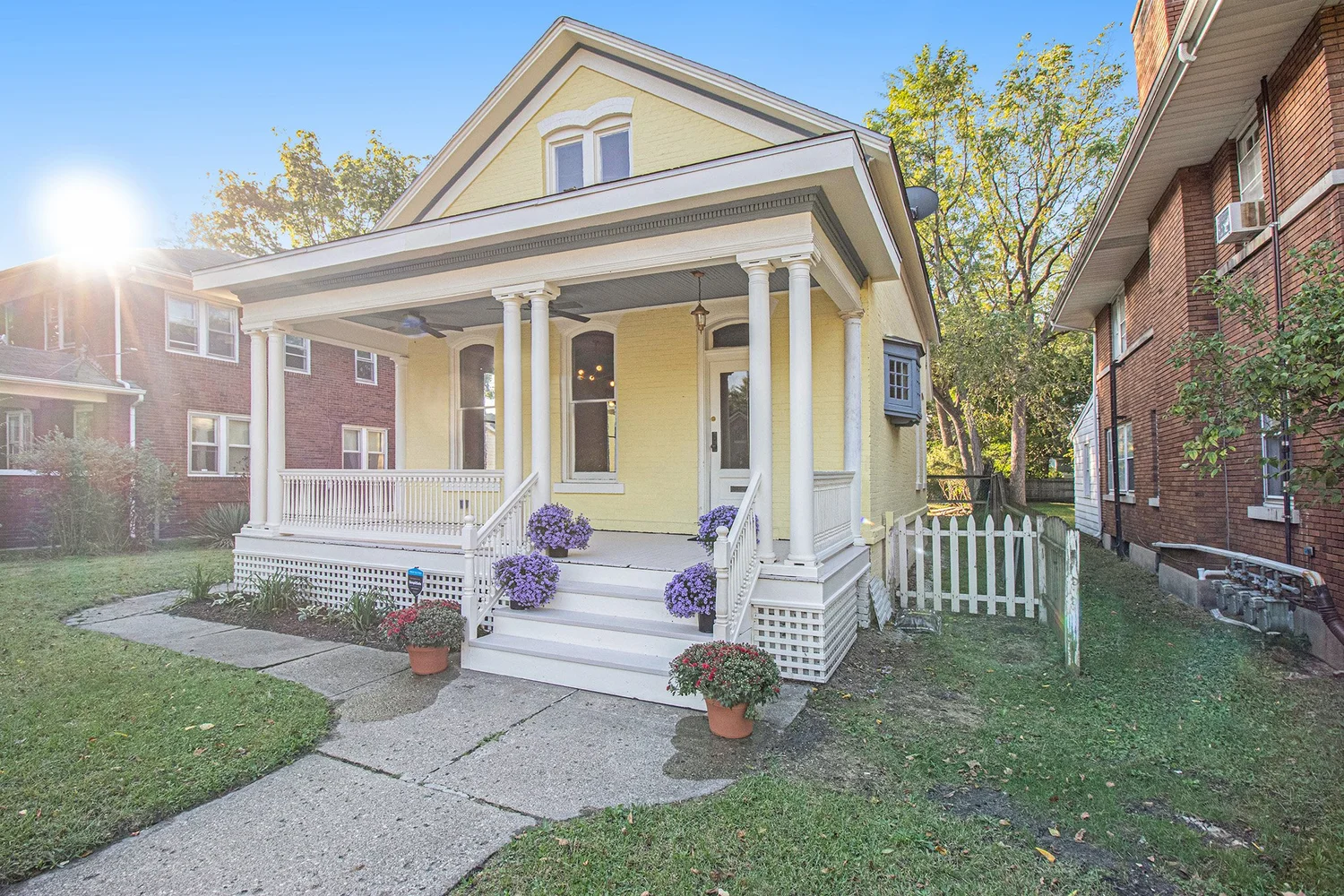
Today, what sets South Bend apart from its Studebaker-era past is the distribution of investment and effort. One factory once anchored the city, so its failure brought everything else down with it. Today, the city’s revival is built on many hands, many bets.
The city itself has become a facilitator. Champions like Tim Corcoran, the city’s Director of Planning, revisited the policies and codes that were holding the city back. Eventually, the creation of the Department of Economic Empowerment created a pathway for technical support and connected small developers to contractors, lawyers, and lenders. Workshops like Build South Bend teach the nuts and bolts of small-scale development, giving residents the tools they need to stabilize and activate their own blocks.
South Bend’s revival is not a miracle. It’s the result of ordinary people taking ownership of their city, learning from failure, sharing knowledge, and acting where the system has failed to act. And in that, it provides hope — and a model — for cities across the country.
Step inside South Bend’s revival in the latest episode of Stacked Against Us. And explore the Housing-Ready City Toolkits to see how your community can grow stronger, block by block.
In Hallowell, Maine, families walking or biking to Hall-Dale Elementary face a daunting task: crossing the intersection of Central and Hillcrest streets, where drivers speed over a blind hill and sidewalks are nowhere to be found.
It’s a well-known hazard, and one that didn’t seem like it would be addressed any time soon. That’s why the Local Conversation Strong Towns Hallowell decided to act.
All of the group’s members are parents, and they knew from experience how dangerous the area was. Their first step was to prove that danger with data. Using resources from Strong Towns’ Crash Analysis Studio, they conducted a speed study and found that over 80% of drivers were speeding. Over 20% were going more than 10 mph over the speed limit.
The blind hill and lack of sidewalks made these high speeds even more dangerous. “Even if someone decides to be nice and, ‘Oh, I’ll go give a wide berth to the pedestrians and do it safely,’ because of the blind crest, they have no way of knowing if there’s another vehicle going over 40 mph in the other direction that’s going to hit them head on,” Dafydd Holbrook-Pronovost told a local newspaper.
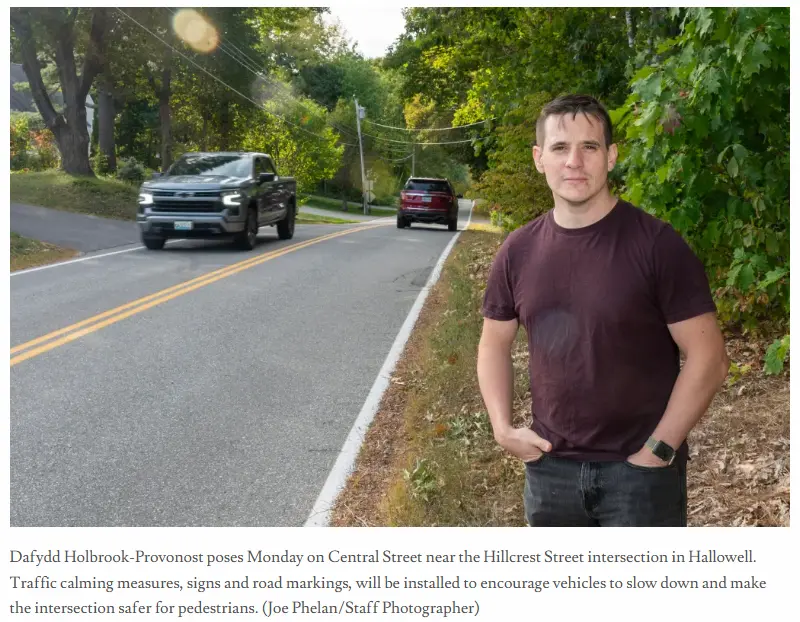
Dafydd is the leader of Strong Towns Hallowell, and he took the lead in developing a plan to address these dangers. Drawing on his experiences in the area and a traffic-calming guide from the Maine Department of Transportation, he identified strategies that could make the area safer. He then brought those strategies to the rest of the group for discussion and iteration.
“Maine DOT employs a single active transport planner, who was highly responsive and enthusiastic, encouraging us to strive for simplicity in our plan,” Dafydd told Strong Towns. The group took the advice to heart. Their finalized plan was very simple: Have volunteers use paint and flexible delineators to narrow the roadway, which will encourage drivers to slow down. The whole project could be done for about $300, which the Local Conversation planned to fund themselves.
- You might want to read: The Power of Paint in Street Transformation
After gathering community feedback and signatures for a petition of support, Strong Towns Hallowell submitted their plan to the city council and transportation committee in August 2024. The planning and community outreach had only taken two months, and the group hoped they’d be able to move just as quickly into implementation.
However, the process proved slower and more complicated than anticipated. Strong Towns Hallowell didn’t get a response from the city until March 2025. In the meantime, the group focused on building momentum within the community. They partnered with the local parent-teacher organization to coordinate the city’s first Walk, Bike, and Roll to School Day in October 2024. Eighteen families participated in the event, which garnered attention from the local news.
When the transportation committee finally met to discuss the plan in April 2025, more difficulties emerged. The committee agreed with the goal of slowing traffic but chose not to move forward with the flexible delineators, which Dafydd described as “the most effective, cheapest, and easiest to implement aspect of our plan.”
Instead, the city chose a more conventional approach: updated pavement markings and new signage installed by the Public Works Department. This raised the total cost to $1,500, five times the group’s original estimate. Fortunately, Strong Towns Hallowell was able to win a grant from the Elsie & William Viles Foundation to cover the cost.
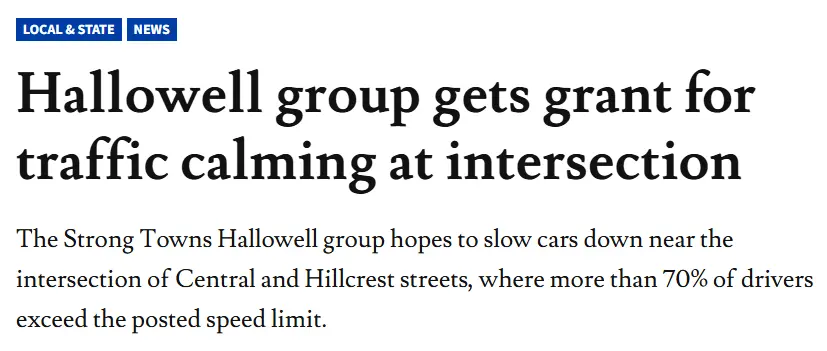
The Public Works Department completed the project installation in late September 2025 — over a year after Strong Towns Hallowell submitted their proposal. One week later, the Local Conversation took part in the second annual Walk, Bike, and Roll to School Day, which drew more than 36 families. The changes made the corridor safer than it had been before — a meaningful step forward — but it wasn’t quite the transformative improvement the group had originally envisioned.
“There has been a slight decrease in average speeds on this section of road,” Dafydd told Strong Towns. “But a significant number of vehicles are still driving at unsafe speeds, and it still feels stressful to walk along this section of road.”
Even so, the project is a victory for the community: residents identified a problem, organized their neighbors, worked through a challenging process, and achieved real, tangible change. While the outcome may not be perfect, it demonstrates what is possible — and leaves the door open for continued improvements in the future.
For anyone considering a similar project in their own community, Dafydd offers three pieces of advice:
- Understand that very small municipal governments have extremely limited capacity, which leads to long project timelines. While not ideal, “it may be better to ask forgiveness than permission,” Dafydd suggested.
- When applying for a grant, emphasize the relatively low cost and high impact of your project.
- Work with other local groups on bigger projects to multiply your impact.
Despite the challenges they faced, Strong Towns Hallowell successfully lowered speeds near a dangerous intersection. They also built strong relationships with community members, other local organizations, and members of the local government. These relationships will give them more influence in future decisions, helping them make their city safer one step at a time.
[[divider]]
Responsible cities analyze traffic crashes to save lives. Yours can too.
Adopt the Crash Analysis Studio model and build a response focused on preventing future harm, not just assigning blame.
How does a small ski town keep up with record numbers of growth in a fiscally responsible way? This is the challenge facing Bend, Oregon, a small city about three hours southeast of Portland that has seen its population boom from about 35,000 in 1999 to its present-day number of 104,500. And it doesn’t seem to be slowing down. By 2045, it’s estimated the population will grow by another 54%.
This brings innumerable challenges around land use, traffic, housing, and infrastructure readiness, challenges compounded by a state-mandated urban growth boundary, a state-mandated limit on taxes, and a history of city leadership being reluctant to address the $80-$100 million of deferred transportation maintenance costs.
Bend native and current Mayor Melanie Kebler sees those challenges as opportunities to creatively rethink the city's policies around housing development, infrastructure investment and development.
As it pertains to housing, the city has embraced an openness to policy reforms that make it easier to build outside of the normal single-family pattern. They’ve eliminated parking minimums and allowed backyard cottages, duplexes, triplexes and quadplexes by right. They’ve also modified their service development charges so that developers pay in proportion to the size of their projects (rather than one-size-fits-all fees), effectively lowering the cost of smaller projects. An emphasis on “complete communities” incorporates an approach to new development that — with its push for housing, amenities and connections to transportation — should prove more financially productive in the long run.
Tackling deferred transportation maintenance also requires creative thinking. Getting a bond approved to fund new projects was one part of the puzzle, but how to cover both deferred maintenance costs and costs associated with future maintenance? That’s where a utility fee came into play, a $6 fee added to standard utility bills and ultimately designated for maintenance. “We know we’re shooting ourselves in the foot if we don't have the revenue to maintain [these projects],” Kebler said.
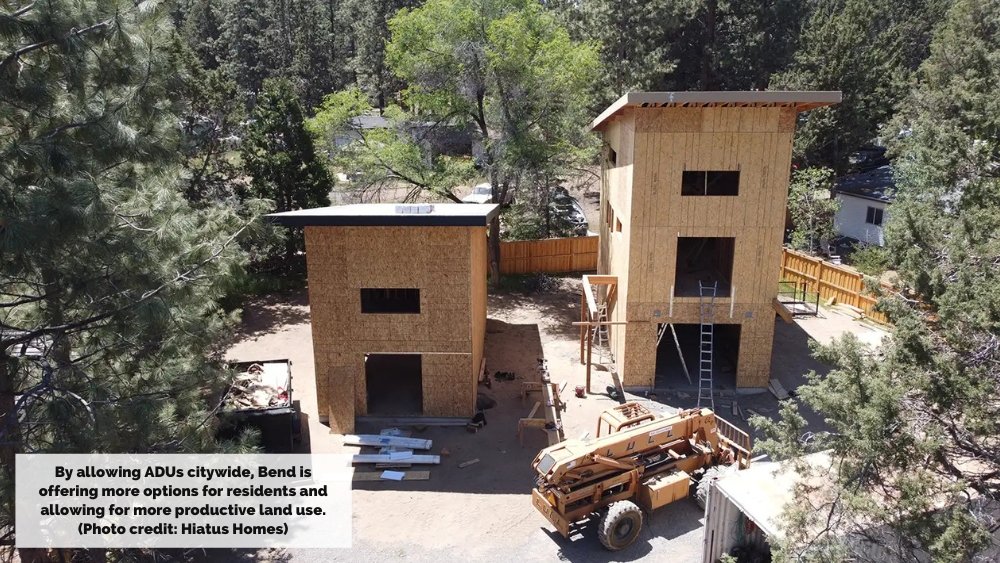
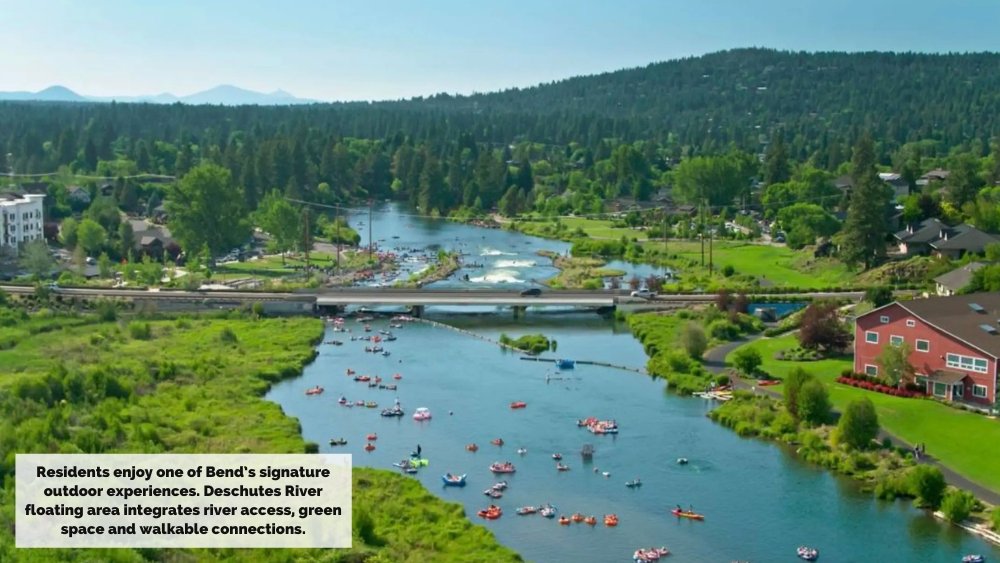
Land is an inevitable part of the conversation around growth: new people need homes and homes require land. In 2024, the state approved Bend's request for a 100-acre extension to its growth boundary, which will allow the city to build more complete communities outside the core. But, according to analysis from Central Oregon Landwatch, there’s opportunity for 20,000 more units to be added within the core.
Part of the challenge to unlocking those projects, Kebler explained, is that it takes time to find the right developers who can do these kinds of projects. In the meantime, the city is “doubling down” on code and policy reforms that can make those projects easier and also looking for the right funding mechanisms to make the pro formas pencil out.
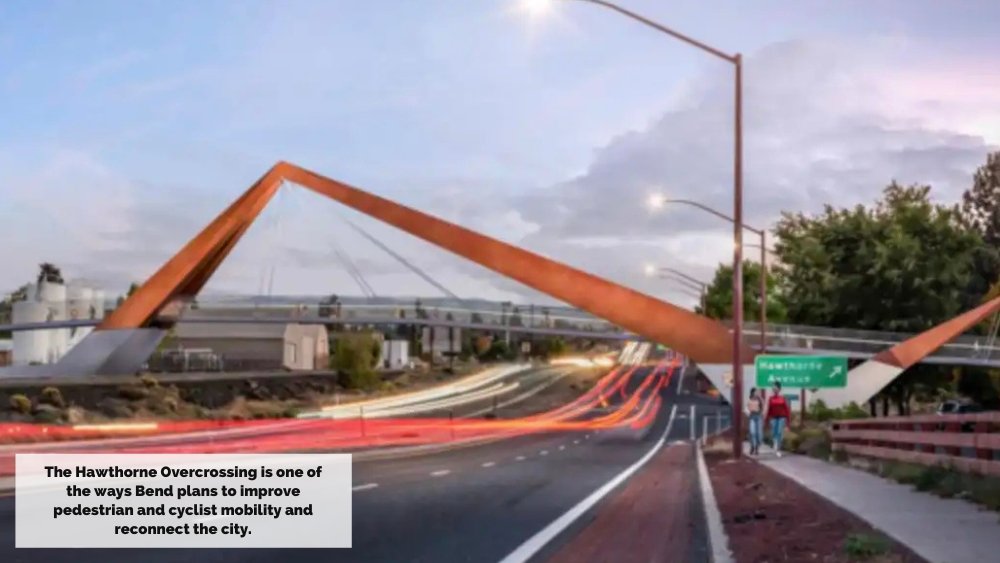

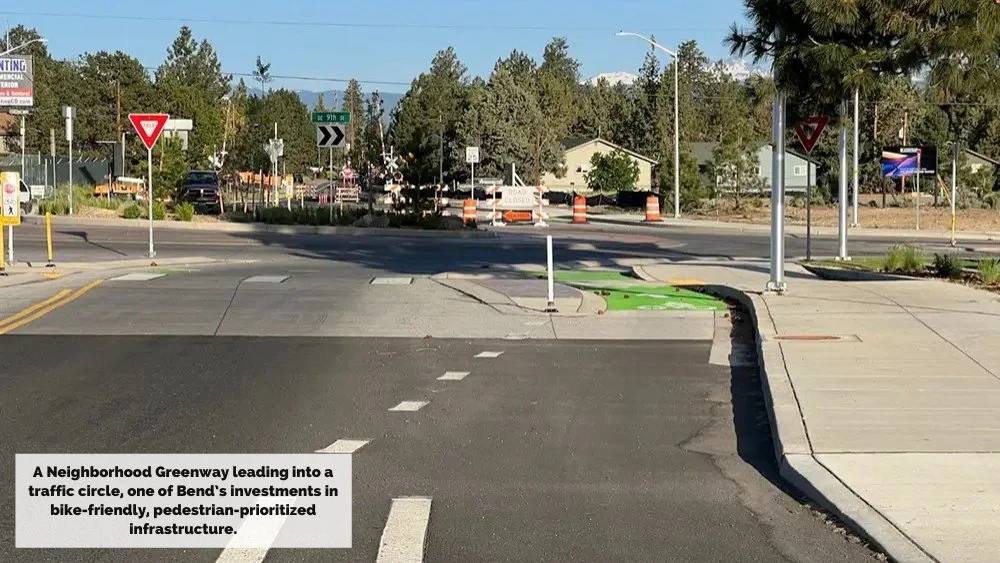
The funding side is a massive challenge because many of these developments require infrastructure investments, the state and federal financial support for which no longer exists. Corie Harlan at Central Oregon Landwatch explained that the entire state of Oregon is currently facing a $12 billion infrastructure funding deficit. She sees that funding gap as a serious hurdle to bringing more homes online and hopes the state will do more to help.
But she also sees it as a chance for the community to do some collective creative thinking. She’s seen the city aggressively move down a “Strong Towns checklist” of how to encourage more incremental development. Now she thinks it’s time to consider what other tools can be leveraged to bridge the infrastructure-funding gap.
It’s a tough conversation, especially for a city experiencing such intense growth. But Harlan is hopeful. “I think certain tools will emerge that are well suited for our city to try.”
- Humbly observe where people in the community struggle.
- Ask the question: What is the next smallest thing we can do right now to address that struggle?
- Do that thing. Do it right now.
- Repeat.
This four-step process is the ethos of Strong Towns—and it’s exactly how Marion, Ohio, has rebuilt itself.
When Marion’s main playground needed to be replaced, a group of parents of kids with disabilities built a new, accessible playground—at no cost to taxpayers. When they were worried about local kids going hungry, Brock and Amy Parker created the Peanut Butter Jelly Truck, a nonprofit organization that provides free meals. These are just some of the examples that Marion native Wendy Weichenthal included in an op-ed that doubled as a love letter to her hometown. “These efforts to make Marion better, one swing, one warm coat, and one peanut butter and jelly sandwich at a time,” she adds. It’s also why she was proud to vote for Marion in the 2025 Strongest Town Contest.
The resilience of this Ohio city of 35,000 didn’t come easy. "Marion is at the geographic center of the Rust Belt," Brian Haviland, a Marion native who took on a branding campaign for the community called “Marion Made!”, told the Marion Star. "I don't know that any community was as hard-hit as Marion."
Marion Power Shovel, which produced the steam shovels used to build the Panama Canal and once employed 3,200 workers, closed in 1978. Armco Steel shuttered its plant in 1981, followed by Quaker Oats' pet food plant in 1989 and ConAgra Popcorn in 2014. Each closure scarred the city’s economic foundations.
By the mid-2010s, Marion had more boarded-up storefronts than nearby Cleveland, the Marion Area Chamber of Commerce noted in a newsletter. The opioid epidemic only devastated the city and county further. A study by the Economic Innovation Group said that, in 2019, the county’s poverty rate exceeded 15%, and the median income per person hovered around $36,000 annually. For comparison, adjacent Delaware County’s poverty rate was below 5% and the average income was nearly double.
But, as local business owner Bradley Belcher puts it, “The real story of Marion isn’t about decline—it’s about response.”
For years, Marion relied on the same economic development strategies that many other Midwestern cities adopted. The focus was on luring large employers, expanding infrastructure, and waiting for outside investment. In the process, the community fabric—tight-knit neighborhoods, local businesses, and strong civic organizations—began to fray. With stagnant policies and lingering stigma deepening the struggles, it became clear that something had to change.
It’s Up To Us
At the heart of Marion’s transformation is a fundamental principle: Strong communities are built from the bottom up, not the top down. “Businesses, organizations, nonprofits, schools and faith communities started reinvesting in residents across all age, education and economic levels,” said Evie Warr-Cummings, director of the Marion County Regional Planning Commission. Local groups were determined to “meet people where they were and create an environment where everyone can thrive.”


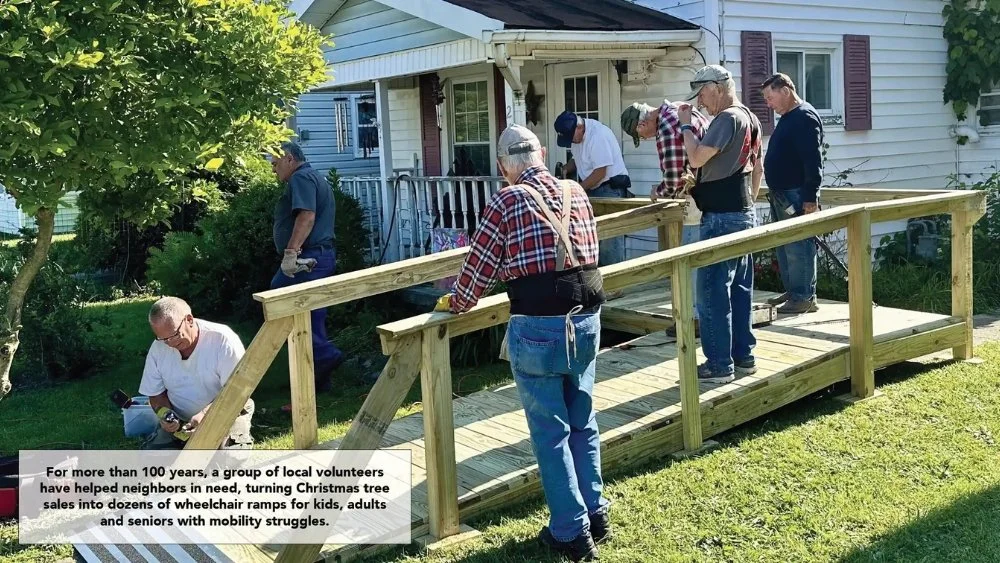
Whether intentional or not, Marion’s path to recovery aligned with the Strong Towns approach. Rather than chasing megaprojects, the city prioritized small, incremental investments in people and places. Instead of waiting for a new factory to save the town, residents focused on rebuilding social infrastructure, strengthening local organizations, and fostering deep, lasting relationships. As Belcher put it: “Instead of waiting for leaders to do something, local residents became the leaders we needed.”
In turn, the city helped those local leaders succeed. The Chamber of Commerce’s Leadership Program has helped over 600 participants improve their leadership skills. It’s also led to the creation of programs and partnerships with local businesses to support and train entrepreneurs. In this way, Marion residents, organizations and officials build on each other’s efforts to benefit the entire city.

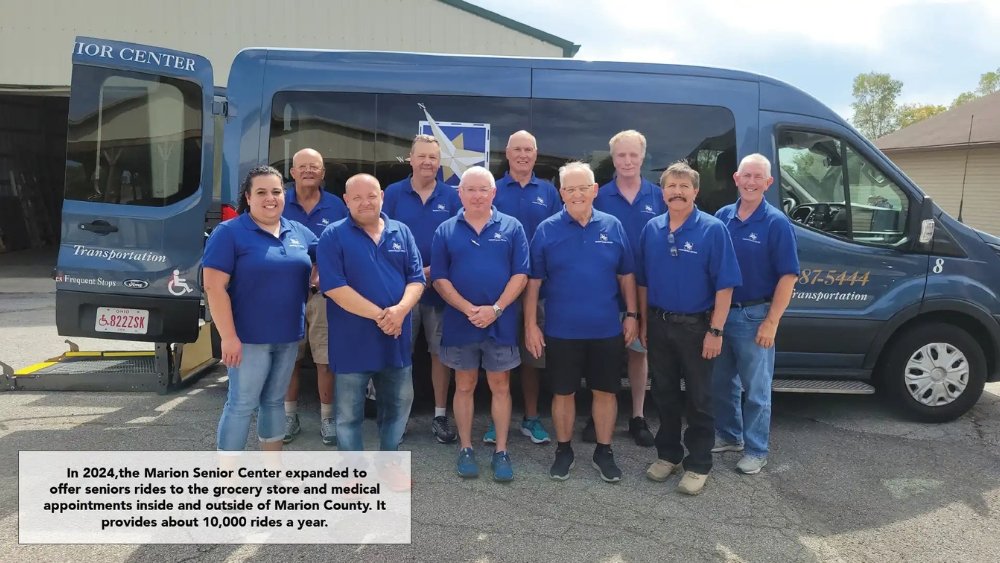
Marion’s fight has not been easy, and it isn’t over. But the city has proven that real economic strength isn’t measured by the size of a factory or the value of a tax incentive package. It’s measured in the resilience of its people, the support systems they build, and the way they lift each other up. Every day, people in Marion are finding recovery, reclaiming their neighborhoods, and proving that a city’s strength lies in its capacity to care for its own.
“And we’re just getting started,” Belcher wrote. “In Marion, hope isn’t just a feeling—it’s the foundation of the economy itself.”
In Weichenthal words, “This is an exciting time to be a part of Marion.”
“I had every intention of nominating Harrisonburg for the Strongest Town Contest this past weekend,” Brent Finnegan wrote on his blog, The Friendly City Urbanist, on February 17.
A lifelong advocate, former Harrisonburg Planning Commissioner, and a member of the city’s Ordinance Advisory Committee since 2020, Finnegan clearly loves his Virginia city of 51,000. But as he worked through the nomination form, he couldn’t help but dwell on where Harrisonburg fell short.
On the issue of mandatory parking minimums, for example, he saw a major flaw: The city requires developers to include a minimum number of parking spaces for almost every type of new development or redevelopment. When it came to incremental development, he conceded that the city scored a zero in HousingForward Virginia’s ADU playbook. “Unless or until we change our zoning and subdivision ordinances to prioritize housing for people over temporary car storage, we are not what I would consider a strong town,” Finnegan wrote.
Each question in the nomination form reinforced the same conclusion—Harrisonburg wasn’t quite ready to compete. However, there was always hope for the future: “If we can address parking mandates, mixed-use development, and by-right incremental housing … Harrisonburg could be a good candidate for America’s Strongest Town next year.”
But the Strongest Town Contest isn’t a pageant for towns that have “figured it out.” No place is perfect, and no city has “arrived.” The towns that rise in this contest are the ones willing to examine their weaknesses, engage their communities, and commit to doing better. They recognize that strength isn’t about having all the answers—it’s about asking the right questions and taking small, meaningful steps toward a more prosperous future.
The contest is for towns like Harrisonburg, where people like Finnegan are interrogating the norms that have trapped Harrisonburg in a pattern of growth that is no longer serving the town. On February 18, barely 24 hours after his original post, Finnegan reversed his stance. “Harrisonburg is becoming a strong town,” he declared.
He submitted his nomination. A month later, Harrisonburg advanced to the Final Four of the Strongest Town Contest.


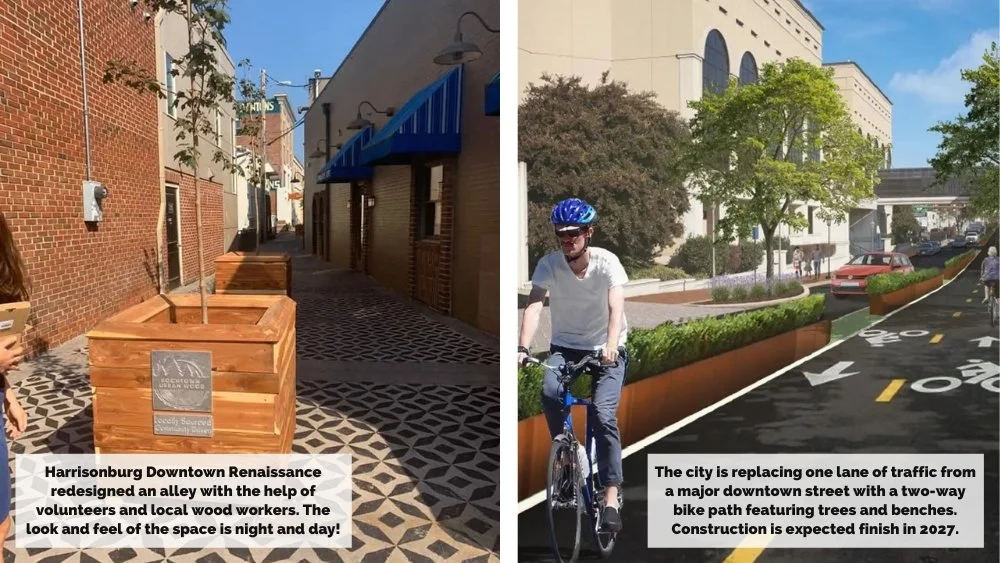
Harrisonburg Is Becoming a Strong Town
Finnegan’s change of heart came after a reader reminded him of just how much progress Harrisonburg has made. Yes, parking mandates still exist—but the city lifted off-street parking requirements in its downtown central business district, a step many cities have yet to take. Its 2040 comprehensive plan isn’t perfect, but neighboring towns could learn a lot from Harrisonburg’s ambitions.
Beyond policy, there’s an undeniable sense of local pride and momentum. “For example, 13 years ago, I was one of 150 local residents that packed the council chambers in support of building the city’s first shared-use path, the Northend Greenway,” Finnegan wrote in his follow-up post. “Now the city has three paved trails.”

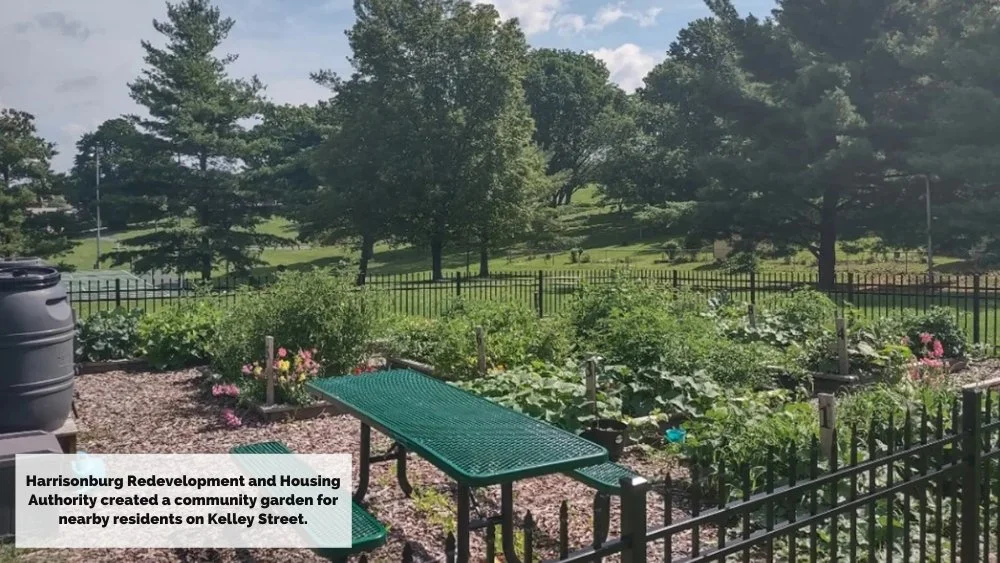
The pace of change may not be as fast as some would like, but there’s no denying that Harrisonburg is putting its principles into action:
- A newly installed crosswalk and stop lines are improving safety in a neighborhood where residents have long raised concerns about speeding.
- The redevelopment of the “Bird District” is a strong example of adaptive reuse and mixed-use development in a place with no off-street parking minimums.
- The city recently launched a new process to sell surplus city-owned land to spur residential development.
- And every summer, the Best.Weekend.Ever festival temporarily closes downtown streets to car traffic, replacing them with families, artists and vendors. “Traffic-restricted festivals like this can help us re-imagine what and who our streets are for,” Finnegan underscored.
Harrisonburg’s story is exactly why the Strongest Town Contest exists—not to crown a winner among perfect cities, but to highlight places that are learning, adapting, and taking steps toward a stronger future.
Not even a year after tying the marital knot, Noah Tang, 28, found himself standing in a house alone, realizing that his wife was not coming back. The separation was final and the divorce would become final just a few months later. Beyond the whirlwind of emotions was the looming practical question: the mortgage. How would he pay it now that he was alone?
Then an idea hit him. As the owner of an old Victorian house that was just a mile from Illinois Wesleyan University and within biking distance to stores and cafés, Tang quickly realized that the spare rooms could function as comfortable flexible housing for grad students and interns. He put together an ad for Craigslist highlighting the offer and the perks — furnished rooms, walking distance to the library and a neighborhood bakery, month-to-month rental arrangements with no pets or smoking. He welcomed his first roommate a month after the divorce and, since then, has never had to worry about a mortgage payment again.
As in any college town, Bloomington landlords offer various housing options for students. However, they usually require year-long lease agreements that don’t fit the variety of situations in which students sometimes find themselves: four-month internships, short summer programs or semester-only study programs. Tang’s posts on Craigslist provided a rental option well below the market rate that would give students the flexibility and affordability they needed. It’s the perfect example of how allowing homeowners to rent out spare rooms can help abate the housing crisis.
In many cities, such arrangements would be considered illegal due to codes that ban unrelated adults from living together in a single-family home. In these places, the family part of that phrase is critical: The homes are for families, not for groups of college students or young professionals navigating transient life circumstances.
These kinds of bans have their roots in historic apprehension about large groups of unrelated immigrants housing together. In more recent times, they’ve been motivated by an aversion to short-term rentals, anxiety about the possibility of loud college parties, or concerns about changing neighborhood character, as was the case in the Kansas ban on co-living in 2022. “Residents are very up in arms about that,” Councilman Eric Jenkins told Business Insider when the ban passed. “It's really not in character with the neighborhood."
However, given today’s housing crisis, allowing adults to decide how best to allocate their spare rooms seems one of the easiest solutions cities can embrace. It requires no code changes, no new developments and no worries about complex legal compliance. The arrangement brings more housing options into the market without expanding the footprint of inefficiently large single-family homes. Tang pointed out the mismatch between the ever-growing size of these homes and the decreasing size of households — many homes feature three to four rooms but only one or two tenants. Allowing those spare rooms to be rented out provides a flexible form of transitional housing that’s appealing to students, interns and professionals trying to save money.
For young people like Tang, it not only provides a way to share the cost of housing but also a greater sense of community, which can boost individual resilience for life’s challenges.
Ultimately, Tang’s housing anxieties never actualized. The rental fees have covered his mortgage for four years now. Noah sees it as an overall positive experience. In fact, he says situations like this remind him of the value of having small-scale, relational landlords.
Echoing Jane Jacobs, he points out how filling this kind of role allows him to be more understanding and flexible. Referencing his friend who fell behind on rent due to unemployment, he said, “If that had happened with a corporate landlord, my friend would have gotten evicted.”
This year marks Professor Gingrich’s third at Dordt University in Sioux Center, Iowa. It’s his second year teaching a course on transportation engineering. However, for the first time ever, Gingrich has assigned "Confessions of a Recovering Engineer" by Charles Marohn to his students.
It’s an unusual choice because the book famously puts the values that underpin the engineering profession on trial. In it, Marohn confronts his past self, an engineer who dismissed the claims of residents in favor of his own expertise — after all, he went to school for this. Moreover, this is what’s in the code and the code is correct, so this must also be correct.
“It's a totally satisfying book about all that is wrong about transportation planning in our cities,” one reader said. That’s why it was a bestseller. It’s also why it’s an unlikely classroom companion, particularly for the next generation of engineers who are only beginning to familiarize themselves with the same protocols that Marohn scrutinizes.
“I have loved it!” one student, Wade, said when Gingrich asked what he thought of the book and how it compared to traditional engineering courses. “It is an interesting perspective that we’d never really get to hear about if it wasn’t for 'Confessions'.” Others appreciate the book for contextualizing the regulations they’re memorizing for the exam. “It is interesting to see how much engineers can look only at what the code tells them and not the project as a whole,” another student, Austin, said.
Evolving Engineering Curriculum for Future Needs
Last year, when he led this course for the first time, Gingrich used the standard materials, the ones necessary for the fundamentals of engineering (or FE) exam. He had his reservations. “This just doesn’t feel right,” he recalled thinking. “You’re taught to take for granted what shows up in the codes.” It didn’t square with his own values. Neither did it align with what his university was preaching.
“[Early in the book, Marohn] talks about the values behind the codes. Here at Dordt, we’re a Christian institution, and so we have a lot of faith-based connections with the idea of values,” Gingrich noted. That’s why the university is very open to materials that supplement the required reading, he added. “We are actually encouraged to bring in perspectives that more philosophically teach you how to think about the profession of engineering, rather than just the practice of engineering. What are the values that we would consider important?”
As he trains the next generation of engineers, Gingrich is hoping that his students will continue interrogating the truths of their profession. That, when they go and improve upon the work of their predecessors, they’ll consider what values underpinned those past decisions and what values are going to inform their own. To that end, he’s not just guiding his students through Marohn’s book, he’s also integrating a new model for analyzing crashes into the curriculum.
Crash Analysis in the Classroom
Conventionally, crashes are examined through the lens of liability. Every party involved, from law enforcement to the media to the judicial system, is interested in what actions and behaviors resulted in the collision. Was the driver impaired? Was the bicyclist wearing a helmet? Was the pedestrian jaywalking? These are the sorts of questions that characterize the investigation. Generally absent is any serious consideration of how road design contributed to the severity of the tragedy.
In adopting the Crash Analysis Studio model, the class will be able to engage with a new methodology that looks beyond blame. One that takes into account every contributing factor, including signage clutter, lane width, turn radii, and a medley of design choices that, when analyzed in concert, will hopefully answer “why” a crash occurred instead of just “how.”
In using this model, engineers can enter a conversation from which they’re systematically excluded. In the aftermath of a collision, law enforcement communicates with everyone from first responders and the media to legal counsel, insurance companies and even elected officials in select cases. Engineers typically don’t make the list. Yet, engineers are responsible for how the road on which the collision occurred was designed and, furthermore, how it will continue to look and feel for the weeks and months afterward.
“I think the biggest thing is looking at what is the impact that their role as engineers can have on the safety process, and having kind of the idea more deeper than what just the code tells them is correct,” Gingrich told me. When so many of the 44,450 fatal crashes cataloged in 2023 happened on the same roads, often less than a mile apart, it’s worth questioning how road design is contributing to that frequency and how engineers can work alongside leaders to proactively address unsafe road conditions.
“And so I think a lot of what we need to look at is kind of like, when does the code break? And when do we encounter a setup that doesn't allow for what we're thinking about in the code to actually play out in real life?” he added. “And are we willing to be humble enough to recognize when that doesn't work, to make the change that needs to be made?”
Part of adopting the Crash Analysis Studio model involves humbly observing and documenting the realities of the chosen crash site. He hopes that, when his class goes out, they’ll be able to recognize what role they play in the driver speeds and behaviors they’ll witness, the challenges people walking or biking may face navigating the area, and the close calls that seem to be a routine stress for anyone navigating Sioux Center.
Safe Road Design Is For Small Towns Too
Sioux Center is a small city of just under 8,000 inhabitants that's surrounded by a suburban and rural development pattern. There isn’t much of a downtown, Gingrich tells me, and therefore not much to walk to. It’s a place where car travel clearly dominates, even for the smallest tasks, though that doesn’t mean that other modes of mobility don’t exist.
For example, in the last decade alone, nearly half a dozen cyclists have been fatally struck in Sioux County, over half of those in the city itself. High speeds were cited as a cause in at least three fatal vehicle-on-pedestrian crashes in the last two years. These figures don’t include injurious nonfatal crashes or those narrowly avoided collisions that never make it into a police report or news story yet can irreversibly damage one’s confidence commuting outside of a car or simply embarking on a leisurely stroll through the city.
Once the class conducts its own Crash Analysis Studio, it'll join over 21 cities across North America that have taken a closer look at why crashes happen and what we — engineers, planners, and concerned citizens — can do to stop them.
If you want to bring the Crash Analysis Studio to your classroom, you can share and teach our free online course. If you have questions for our team about this process, or if you’d like a Strong Towns expert to speak with your class, email us at [email protected].
On March 10, 2020, Ally Smither landed in California after a long flight, eager to spend the next few weeks singing in San Francisco. But the moment she landed, she learned that wouldn’t be happening. The performance was canceled. As was the rest of the season. In fact, within a week, Smither saw an entire year of work engagements vanish through a combination of emails, calls and texts. COVID-19 had arrived, and her career as an opera singer would never look the same.
With no reason to remain in California, Smither had two places she could go: Houston or New York. New York was on the table as the city where she had just started a postgraduate degree program. Houston, however, was familiar. It’s where she earned her master's and where her husband resided. She also loved Houston. In some ways, it was a no-brainer; but at the time, the Texas city wasn’t part of her long-term plans. In fact, the plan was for her husband to join her in New York, a city that’s an inevitable stopping point for any professional musician.

Those who recognize Smither’s name from Strong Towns’ reporting on Stop TxDOT I-45 — the grassroots group combating the North Houston Highway Improvement Project (NHHIP) — know where she landed.
For those who don’t, Smither ended up doing communications for Stop TxDOT, which meant anything from answering emails — like those from me — to drafting and promoting press releases and managing social media. She assumed the role in December of 2020 having never done anything like it. She even joked that she couldn’t spell "TxDOT" at the time.
“I was so far removed from the world of organizing,” Smither told me. As an opera singer, she’d long been a champion of programming underrepresented composers in recitals and other performance opportunities. Themes of social justice and equity were core to her philosophy as a musician, and she’d done a bit of organizing at Rice University. “But this was totally new to me.”
How she even ended up with Stop TxDOT was a matter of luck. In June 2020, she and her husband volunteered to drive detained demonstrators home as thousands flooded the streets to protest police brutality. In doing so, they connected with West Street Recovery, who suggested they attend an upcoming picnic. That picnic was hosted by Stop TxDOT.
It was then that she first learned about the NHHIP, its $9 billion price tag, and the hundreds of businesses and homes slated for destruction, all in an attempt to alleviate congestion. With Houston already home to the 26-lane Katy Freeway — one of the world’s widest highways and the poster child of induced demand — it was hard to imagine anybody would be championing more lanes. Yet, here was the NHHIP.
It was easy to see why the project should be opposed. What Smither didn’t anticipate at the time, however, was that she would be so moved by the sociopolitics of transportation and infrastructure. She was seeing in real time how much of what she cared about — like accessibility, dignity, and racial and economic inequities — was materially impacted by the choices in our built environment.
So, she attended Stop TxDOT’s next meeting. “I had no technical background in transportation and I had never organized in this capacity,” she told me. “But in being a musician, I’ve organized concerts, I ran an ensemble … I had a lot of skills already that were actually very well suited to this kind of work; you know, people-moving skills.”
Her proposal to put on concerts as a means of spreading awareness of the project and mobilizing the public received a thumbs-up. “That ended up being my first experience with Stop [TxDOT].”
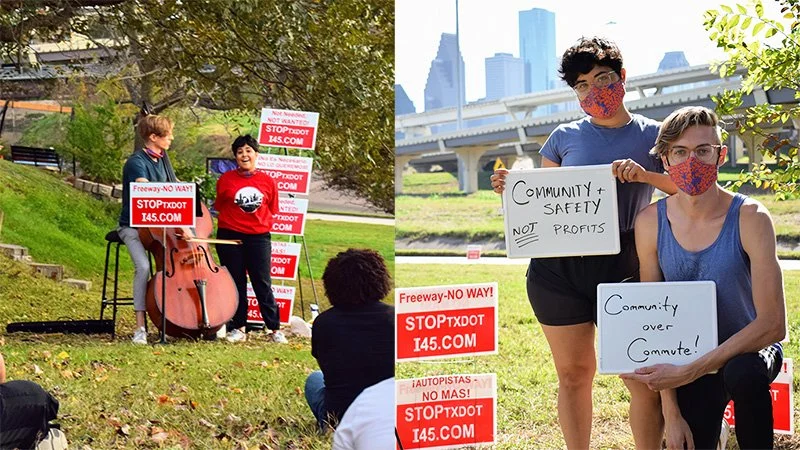
Let It Unfold
Soon after, Stop TxDOT’s founder Susan Graham was soliciting help with social media. Smither stepped up, having never worked in that capacity but figuring she’d learn on the job. She did. In a few weeks, she was issuing press releases and managing Stop TxDOT’s communications. She even enjoyed it. “I wouldn’t say I was good at it yet, but I remember feeling like I have an aptitude for this work. And I enjoy doing it,” she said. “But that was scary.”
Smither had spent practically her entire life training to be an opera singer. She’d been competing professionally since the age of 14, touring the country, singing with orchestras, opera houses and chamber ensembles. COVID-19 disrupted her trajectory, but eventually, theaters would reopen and audiences return. What would this newfound fulfillment in advocacy and this aptitude for communications mean for the life she’d been building all these years?
“Being a singer was my whole world. Before this, I didn’t know many people who weren’t in music,” she told me. "It was very scary to see I had a deep interest and calling to something else. I wanted to be good at it... to do good for it… and for the movement."
In 2021, an opportunity to work full-time as a communications coordinator for a separate Houston non-profit opened up. By this point, the expiration date of pandemic unemployment assistance was in sight, vaccinations were underway, and businesses had adapted to public safety regulations. Normalcy was still far away, but the horizon was visible. Yet, uncertainty persisted in the music industry. Smither knew that in taking the position, she’d not only have job security, but she’d formally develop the skills needed to elevate Stop TxDOT’s messaging, too. At the same time, it felt like closing the door on a life she’d been building for as long as she could remember.
She took the job, heeding the wisdom of author Adrian Marie Brown: “Take the next step that’s aligned with your values, and let it unfold.”
If You Want a Movement, You Have To Let People In
In 2024, Smither continues to live by those words. She is still an opera singer, balancing her career with her organizing and communications work. In addition to Stop TxDOT I-45, she works part-time for the Houston Air Alliance, a longtime ally of Stop TxDOT.
“[Since joining Stop TxDOT] I’ve learned so much and thrown myself at so many things I never thought I’d know how to do,” she shared. Since joining, she’s helped run a political campaign for her best friend Molly Cook, a first-time candidate who snagged 42% of ballot initiative votes against an incumbent to reform Houston's metropolitan planning organization. Just a few days ago, on May 5, 2024, Cook won a seat in the Texas Senate. And with Stop TxDOT, she’s saved one of the few transit-oriented buildings in Houston’s downtown from being entirely demolished for the NHHIP. “And that’s because I crossed paths with Stop TxDOT.”
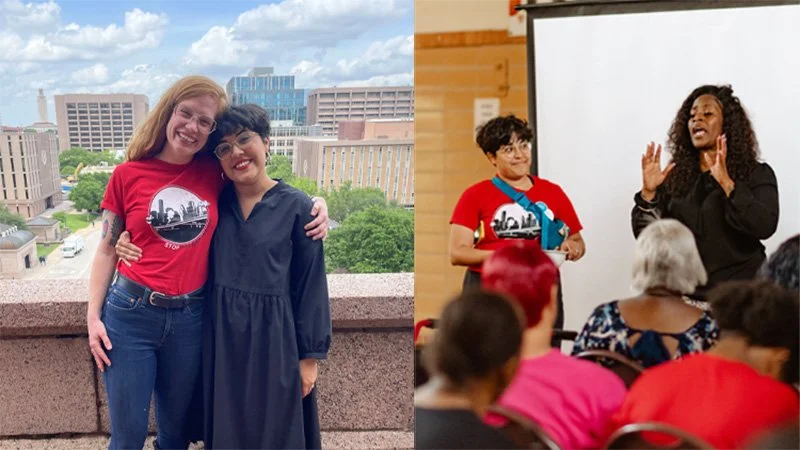
Smither's life is no longer a choice between music and advocacy; in fact, she’s been able to tease out the symbiotic relationship between the two.
“I have two lives. It’s difficult, but I love my work; I feel very fulfilled ... like I'm grounded in a community,” she described. “The more I do this work [advocacy] the more I love music, art, and singing. And I see so clearly that everybody should have ... the time and mental capacity to fit art and music into their lives. But that requires us fighting for it, including stopping freeway expansions that kill people.”
The balance she’s struck is heartwarming, but it’s only part of Smither's story. She underscores that she would not be where she is today without others affording her patience and trust. “Honestly, a year ago, I was doing all of this stuff and I was only learning then what a planner even did,” she laughed.
Stop TxDOT knew that a successful movement had to be more than its spokespeople, bylines and experts. “It’s horizontal, you know,” she said of how the group operates. There was a willingness to hear and entertain anyone’s ideas, no matter how new they were to the cause. That openness allowed Smither to ask questions, take risks, make mistakes and, above all, learn. And ever since she became someone who welcomes others into the movement, she’s made sure to lead with the patience and trust that welcomed her. “One of the things I’m proudest of is that Stop now has a communications team of about five young women. We’re all teaching each other and learning together constantly, and that is very powerful.”

“We are an ecosystem,” she added. “If you’re more knowledgeable, you need to share and teach and help people grow, whether or not they have traditional credentials. Like, I’m an opera singer, and three and a half years later, I confidently run campaigns, engage in policy and plan long-term strategy.”
A successful movement also has to outlive its wins and its losses. And anyone fighting a multibillion-dollar highway expansion knows that there will be more of the latter, she concedes.
“Movements are hard,” Smither adds. “But it’s essential that you ask yourself whether you are taking care of the people who want to work on this with you. That doesn't mean there won’t be conflict, but are you taking care of the people who already came through the door? Are you cultivating and encouraging them, especially people who are outside the box of who is usually invited into transportation spaces?”
On August 7, 2022, Christine Hawk Embree was struck by a car while biking with her daughter in her hometown of Carlsbad, California. She ultimately did not survive her injuries, leaving behind her daughter and husband. These were the headlines that followed the tragedy:
The Coast News, August 8, 2022: “Mother injured in e-bike accident in Carlsbad”
The Coast News, August 16, 2022: “Carlsbad mother’s e-bike death stuns residents”
NBC San Diego, August 9 2022: “Carlsbad Mother Killed While Riding E-Bike With Young Daughter.”
Fox 5 San Diego, August 16, 2022: Family of Mom Killed on E-bike Pushes for Safer Streets
The fixation on e-bikes in every headline could be chalked up to the game of Search Engine Optimization, or SEO, wherein popular keywords are chosen to harvest the most valuable currency for any news outlet: clicks. E-bikes, like autonomous vehicles and artificial intelligence, are some of the latest buzzwords entering the popular zeitgeist in a way that makes almost any news about them polarizing.
Nevertheless, a marketing strategy doesn’t absolve these outlets of distorting the focus of what actually killed Embree.
They’ve Been Begging For Change
A week after her death, Embree’s grieving husband spoke on the same podium where, just 19 days earlier, he was urging the Carlsbad City Council to redesign the neighborhood streets.
“We have young kids that walk to school there,” Bob Embree told the council. “Speed bumps, roundabouts, stop signs, anything to save a life. All I’m asking is if we can slow traffic down and save a life.”
Locals have been desperate for traffic calming interventions, citing ceaseless speeding in a neighborhood that’s seen significant growth of traffic in recent decades. “We’ve truly witnessed fundamental changes on our streets,” Todd Harris, who lives right at the intersection of the crash, shared. “They were designed 50 years ago for a different type of traffic.”
Furthermore, the summer of Embree’s death was uniquely deadly, claiming several lives on Carlsbad’s streets. That’s what prompted Bob to address the council in July. What he couldn’t have predicted then is that his wife would be among the victims just days later.
He and his family have since continued petitioning for design interventions that would compel drivers to slow down. While there’s disagreement over what approach would be most effective, the consensus is that design is culpable, and change is urgently needed.
“We can’t afford another accident. We can’t afford another six months of data where there could possibly be another fatal accident,” another Carlsbad resident told Fox 5 San Diego after the crash. “We need to act now.”
The City Responded…but It’s Not Enough
Three weeks later, on August 23, 2023, it appeared as if the city had heard the cries of local advocates. Carlsbad declared a local state of emergency for bike, e-bike, and traffic safety, citing a 233% increase in collisions since 2019. The declaration awarded Carlsbad the power to expedite specific actions and bypass bureaucratic processes to address an “imminent threat” for the next seven days.
For residents, this was an unprecedented opportunity for the city to sweep in and implement the changes they’d been petitioning for years. After seven days, however, the site of the crash looked the same as it did on August 6, when Embree was struck.
Nevertheless, within a month, the city launched the Safer Streets Together Plan, an initiative entirely focused on changing “public behaviors and attitudes by focusing on education, engineering and enforcement.”
“It wasn’t just, ‘Here’s an emergency.’ The public saw real things happening in the first weeks and months and that’s how this has changed things so quickly,” alleged Chief Innovation Officer David Graham at Safer Street’s launch.
As of this writing, the site of the crash looks the same as it did a year and a half ago, and Carlsbad spent 2023 mourning dozens of traffic deaths. A resident even nominated the crash that killed Embree to the Strong Towns Crash Analysis Studio in the hopes that renewed attention will push the city to action.
Despite the reality on the ground for Carlsbad residents, the city is convinced that their focus on behavior is working. They’re ramping up enforcement and education for e-bike users—for example, Carlsbad’s School districts now regulate e-bike use, concluding that students who wish to commute to school using electronically assisted bicycles in the notoriously hilly city should obtain a permit first. In order to receive a permit, students must submit an application and attend a mandatory bicycle safety presentation. A 2015 California code that grouped “e-bikes” with “traditional human-powered bicycles” is under scrutiny again, with many hoping for stricter rules around classification.
The city recognizes that commuting by bicycle—electronically assisted or not—is growing in popularity. It likewise admits that alongside that rising popularity came a rising death toll. For many of the city’s cyclists, however, in concentrating on behavior, Carlsbad is confusing correlation with causation.
The city is not without painted bike lanes, but for many relying on two wheels to get around, the infrastructure dedicated to their safe travel is limited. Bikes routinely mingle with those in cars on roads designed only with the latter in mind, something even Carlsbad officials have admitted.
“I’d much rather see a kid riding a bike than playing video games,” Lt. Ryan Wisniewski, of the San Diego County Sheriff’s Department said. “But when you see them riding down [Coast Highway] 101 or some of the major thoroughfares like El Camino, they’re going 20 mph on an e-bike and cars are going 50 mph. You’re asking a 12-year-old to make a split-second decision like they’re a regular driver with no driver safety program or training.”
Yet, after making that observation, they’ve determined that behavioral education will make the biggest difference in saving lives, rather than constructing an environment wherein that mingling is the exception, not the default.
Get the Email Newsletter
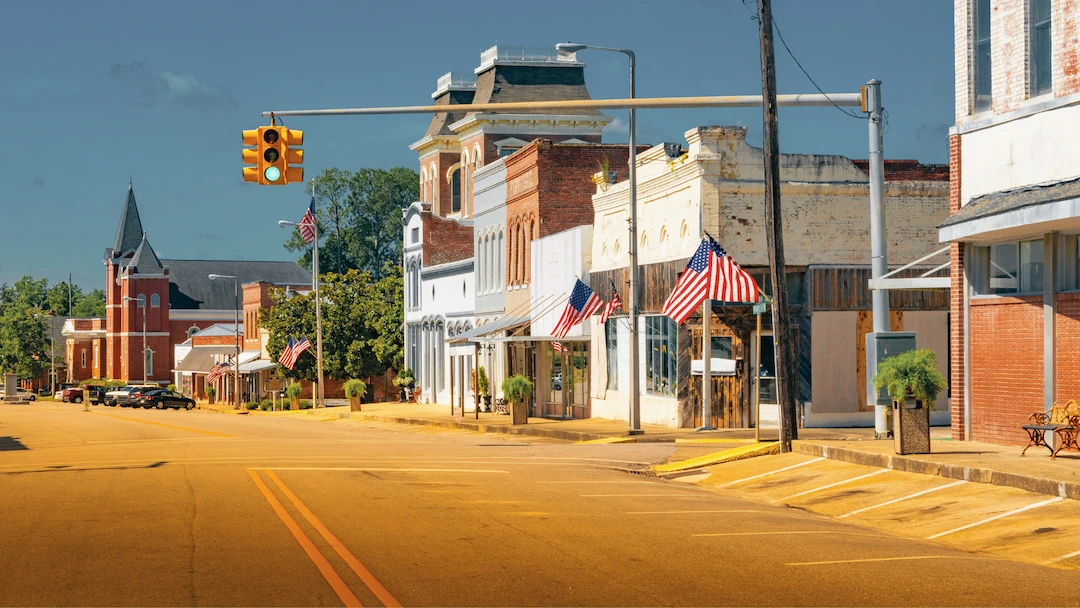
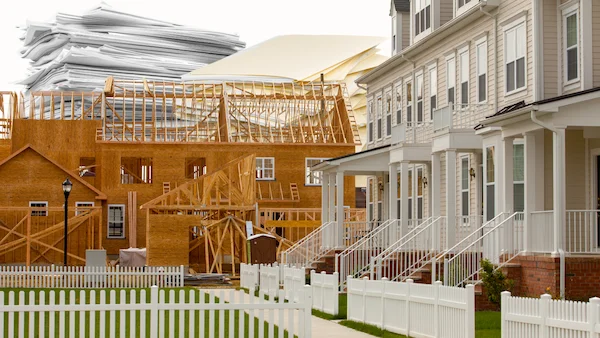

.webp)


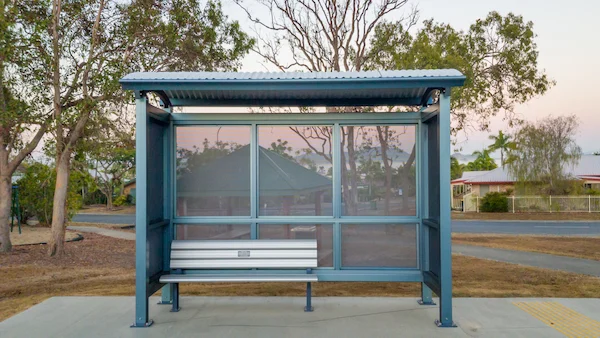
.webp)
.webp)
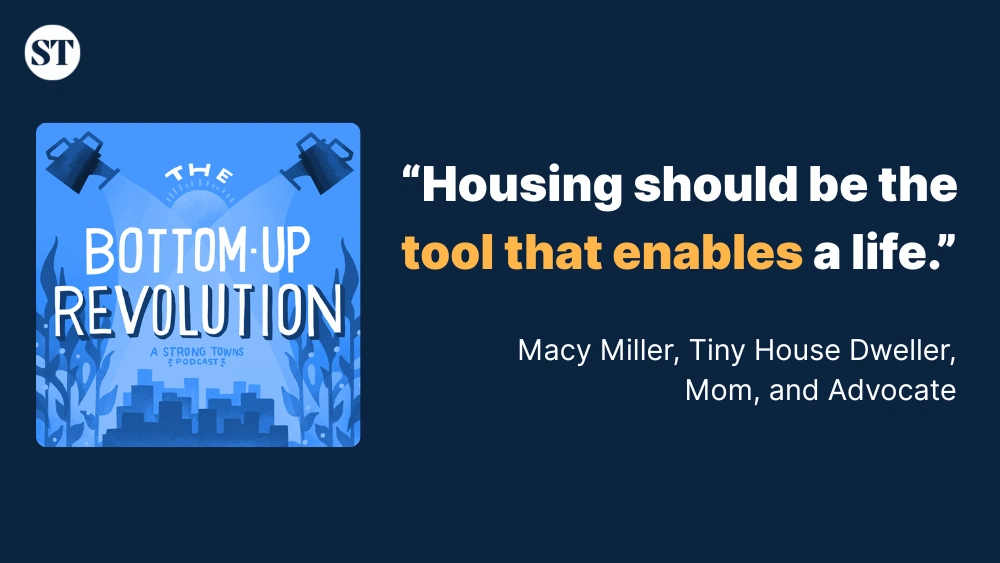
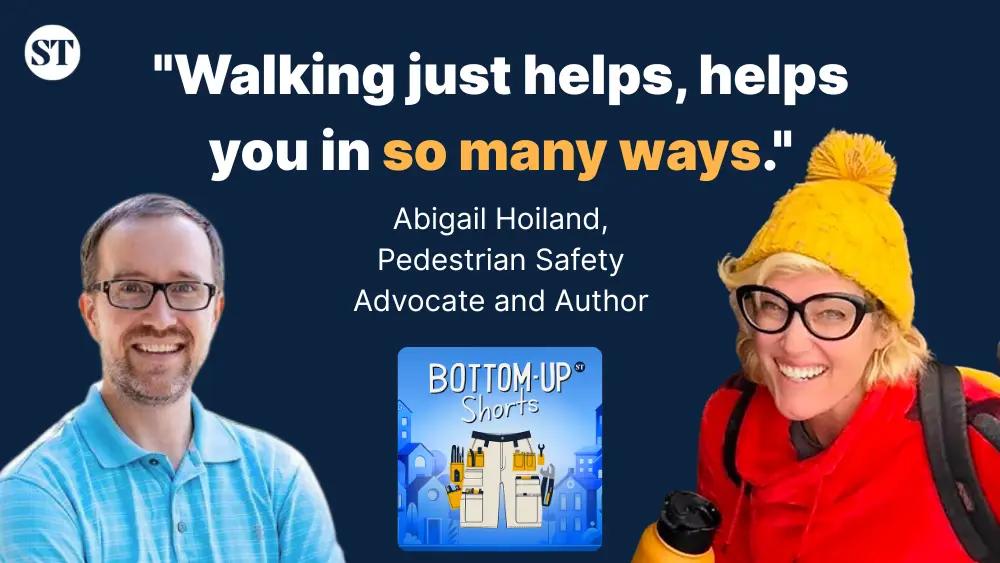
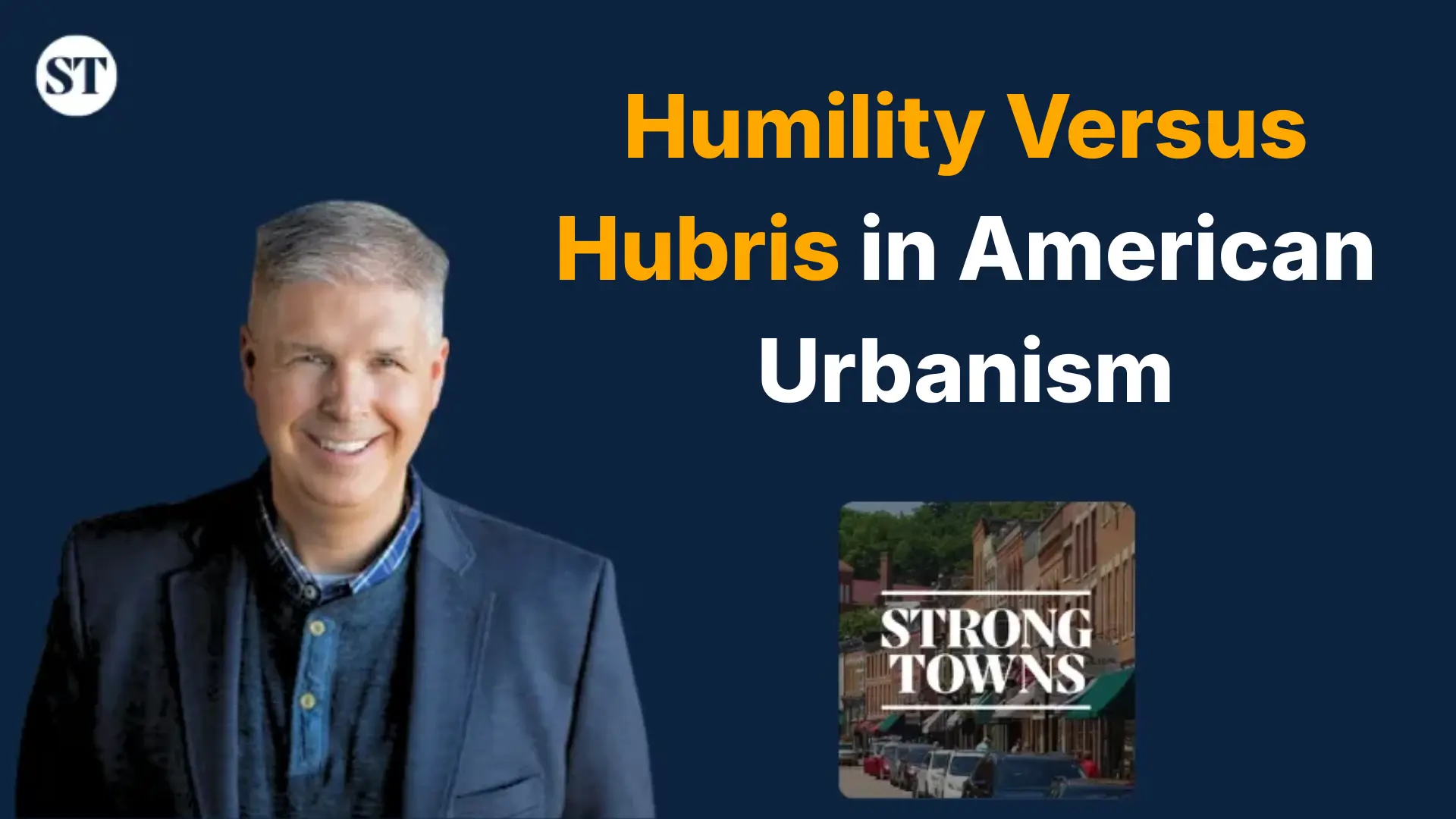
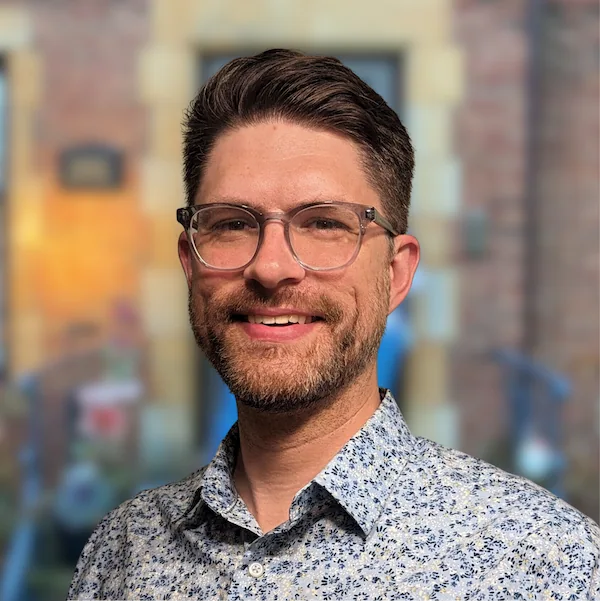

.webp)

